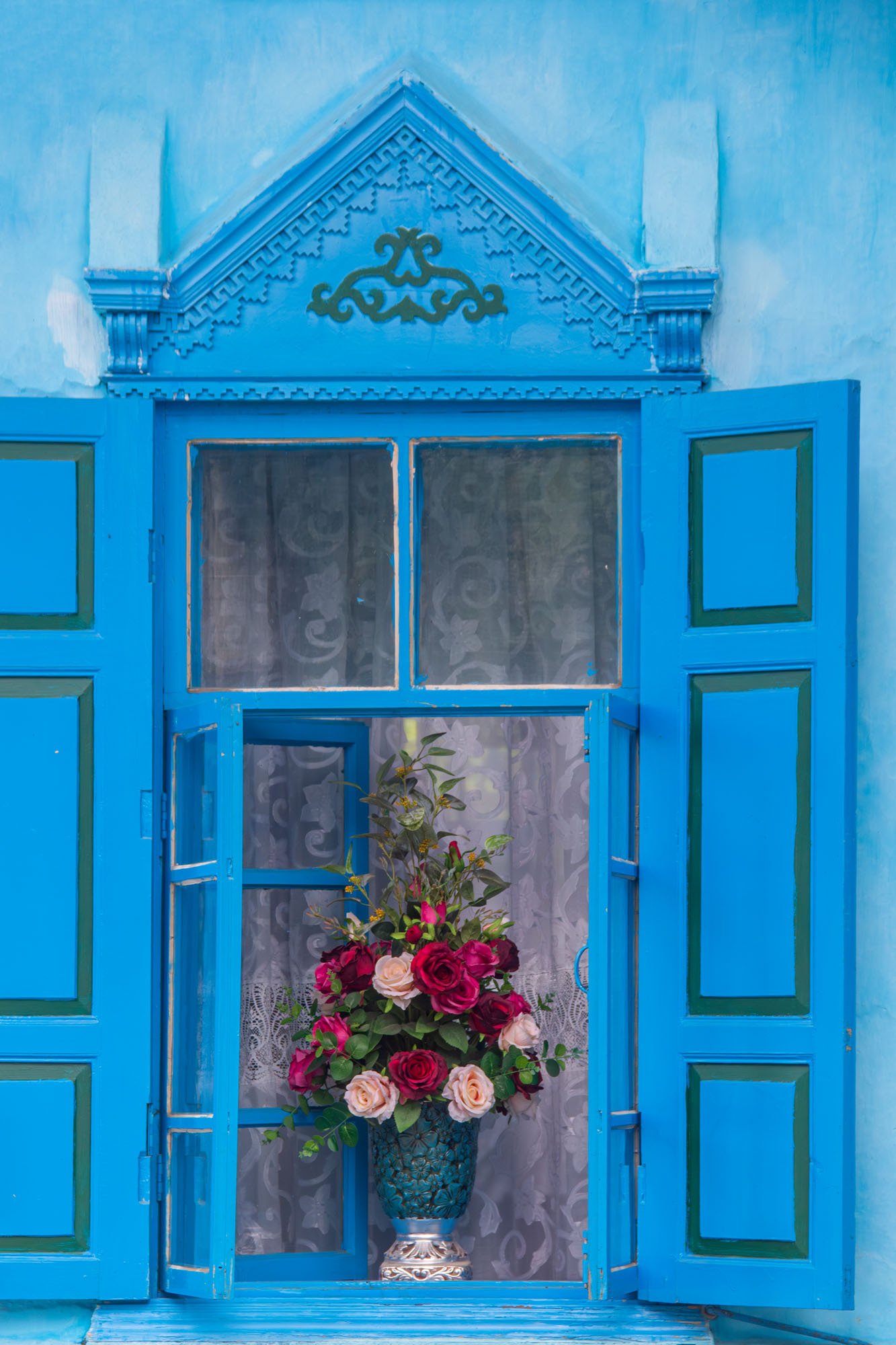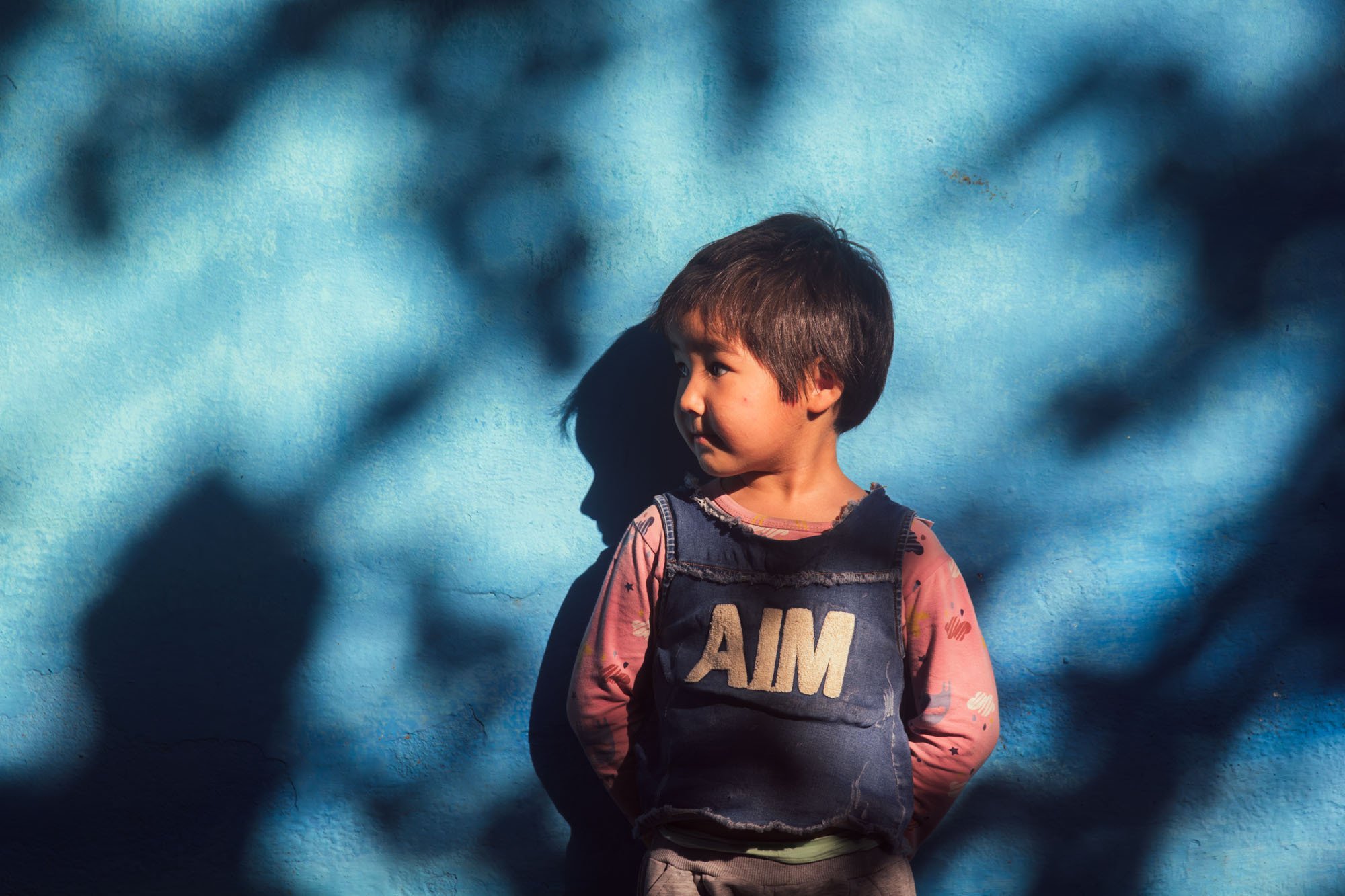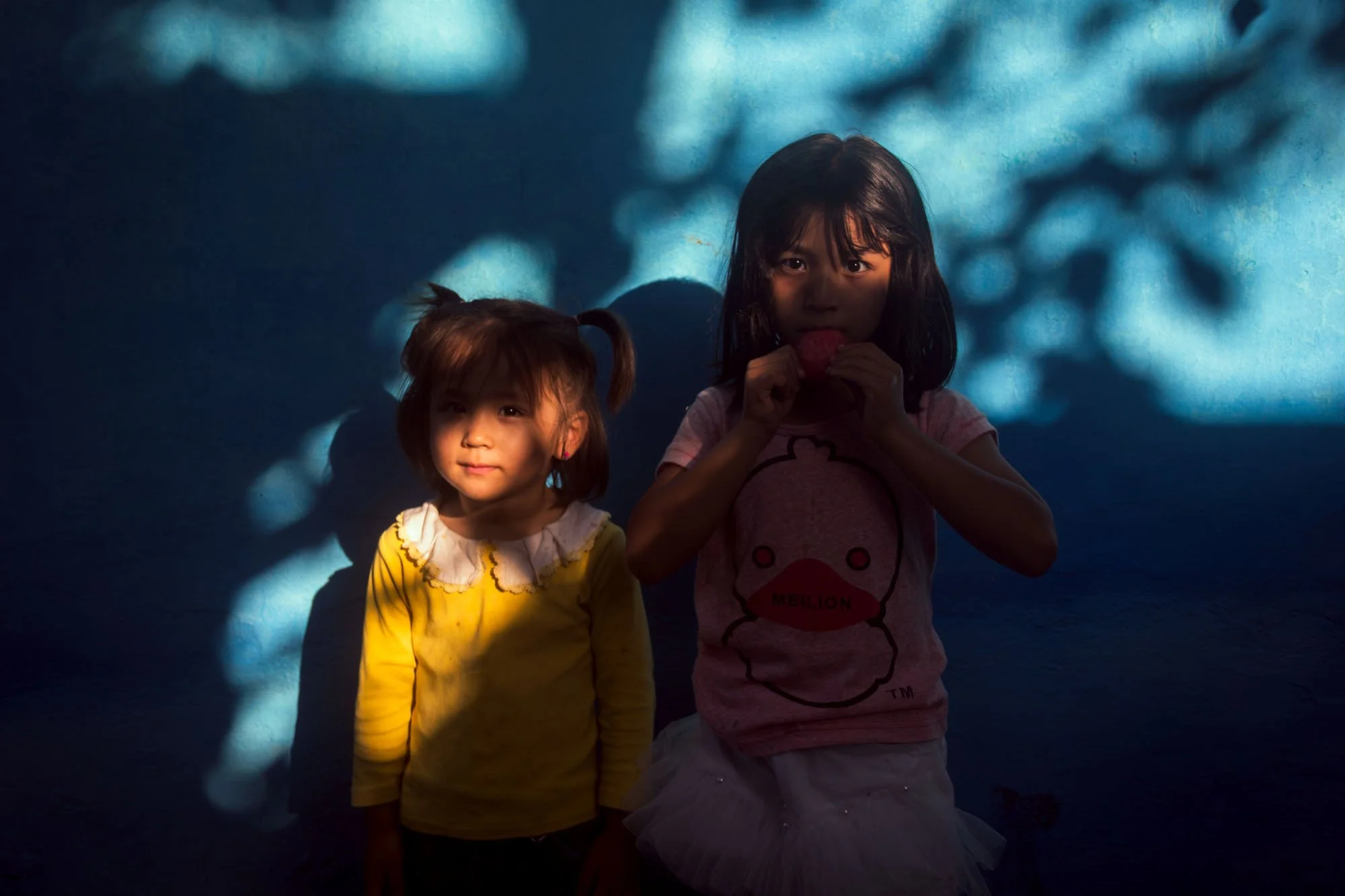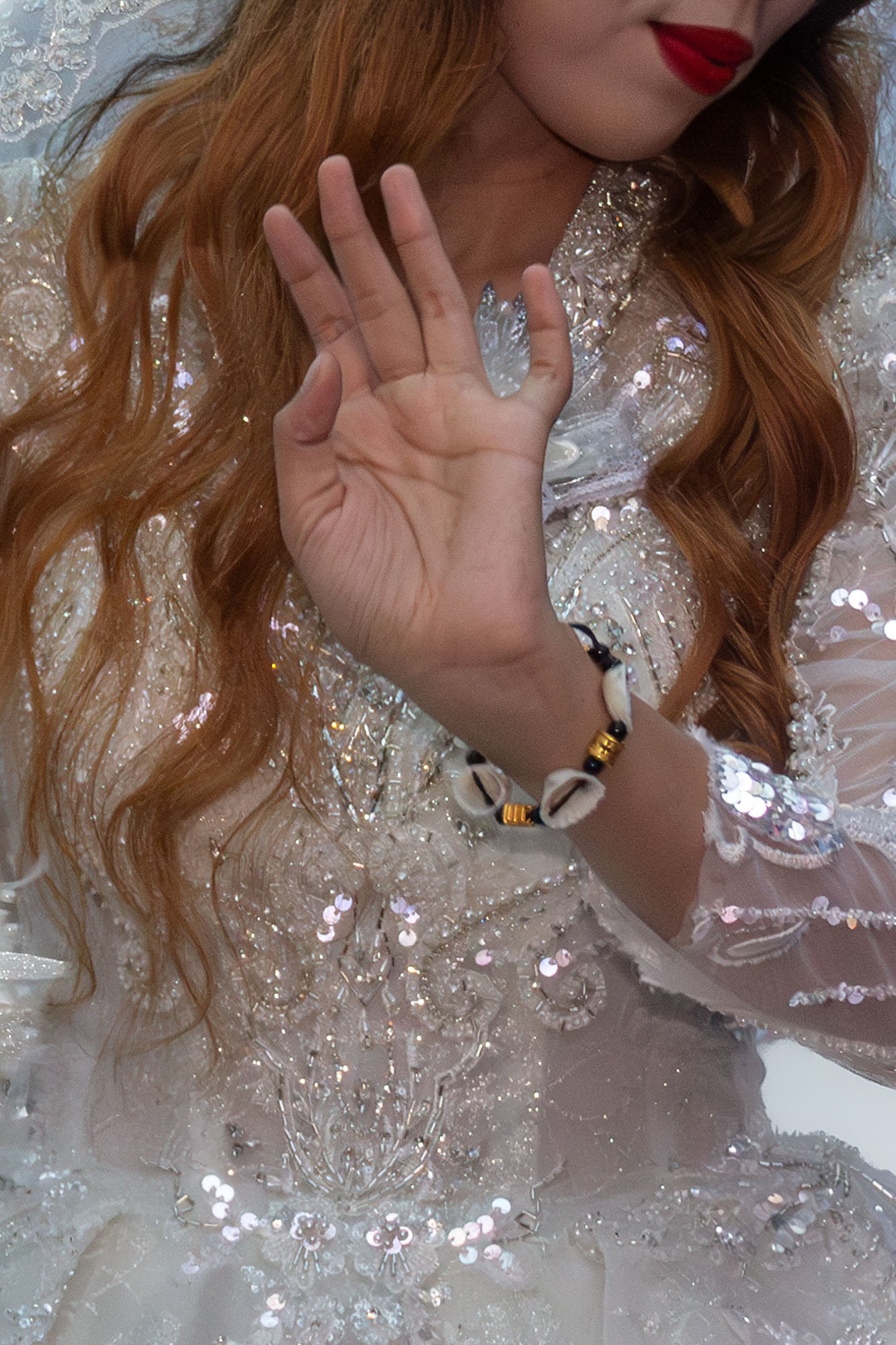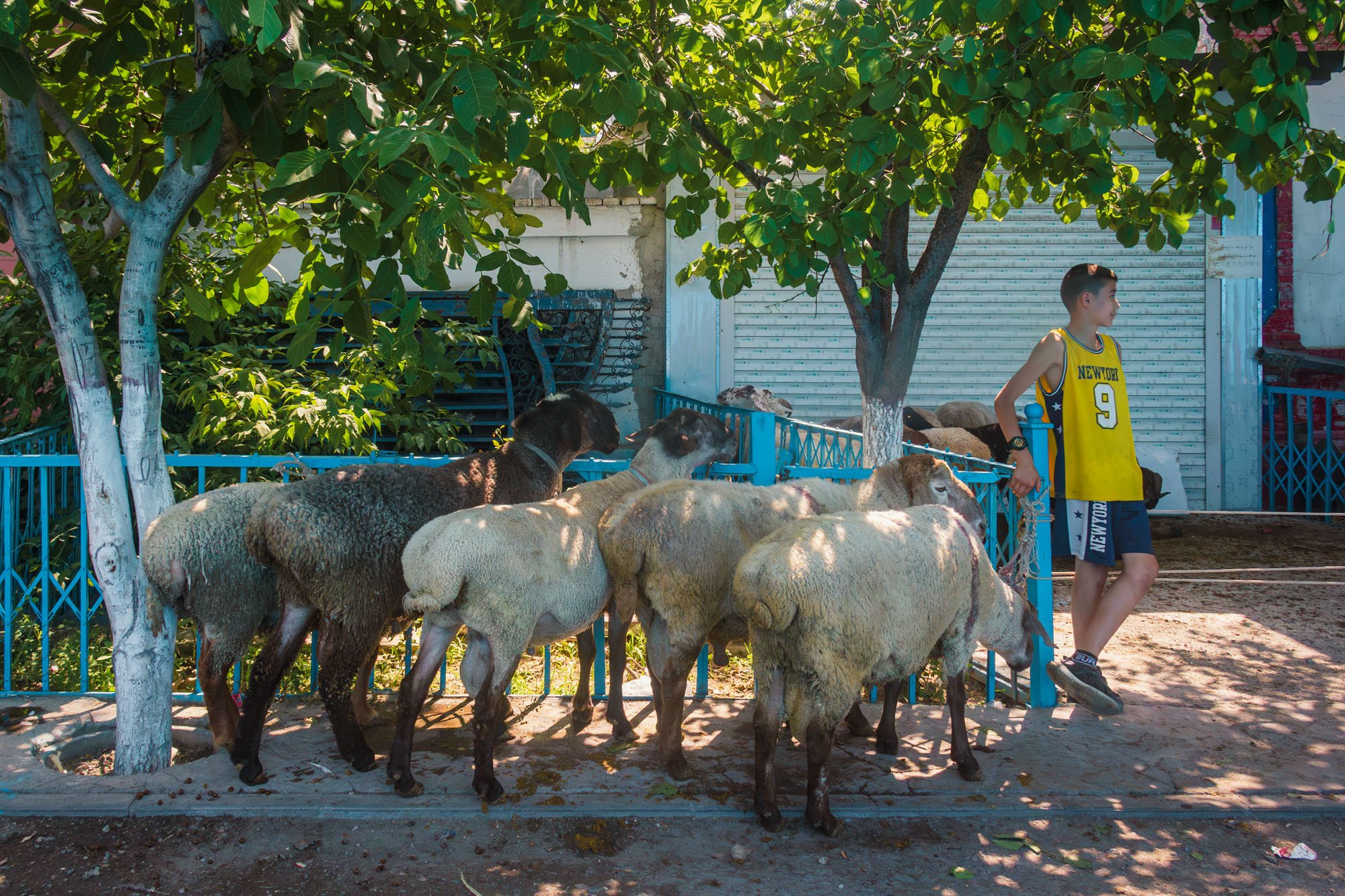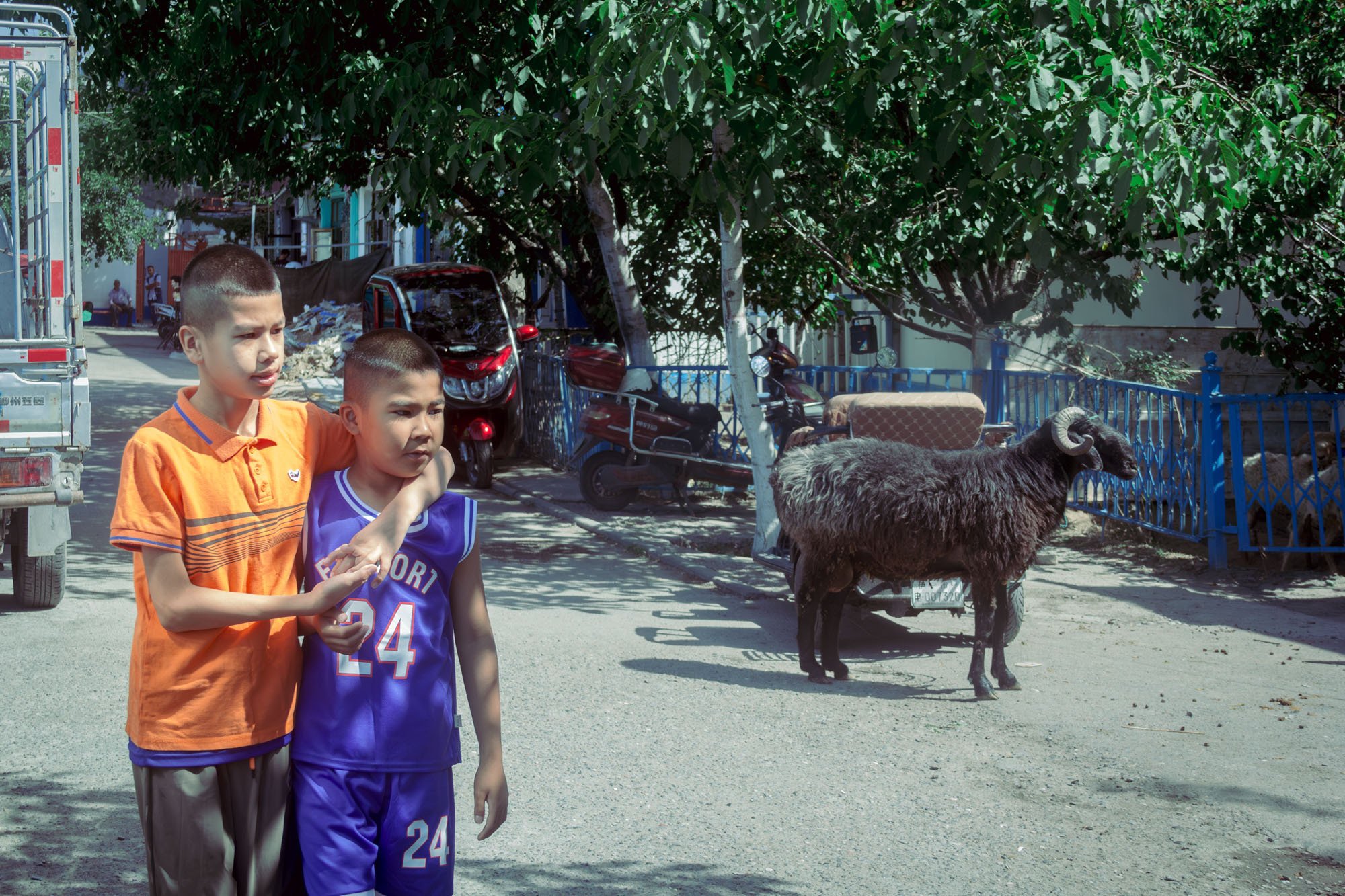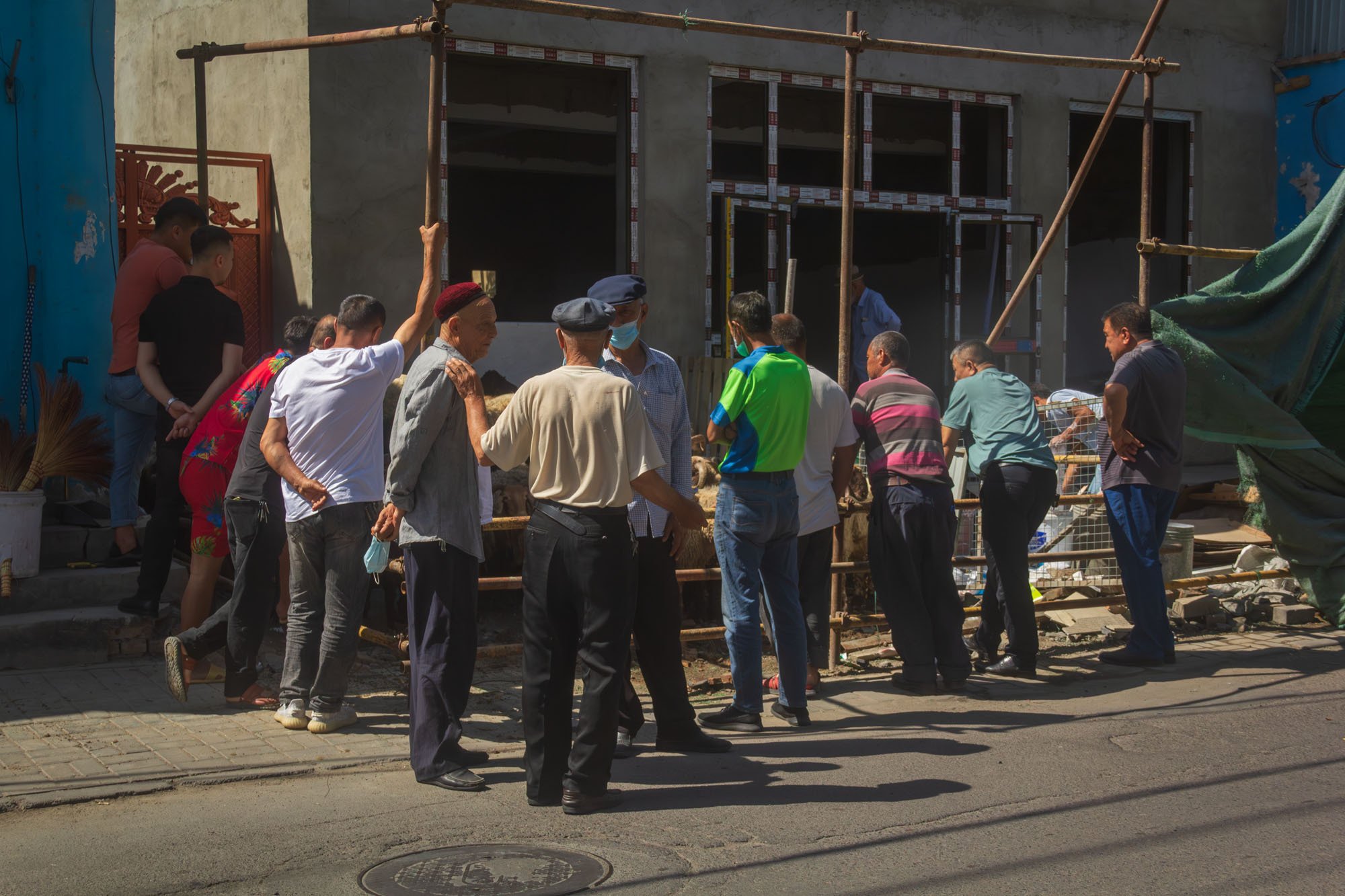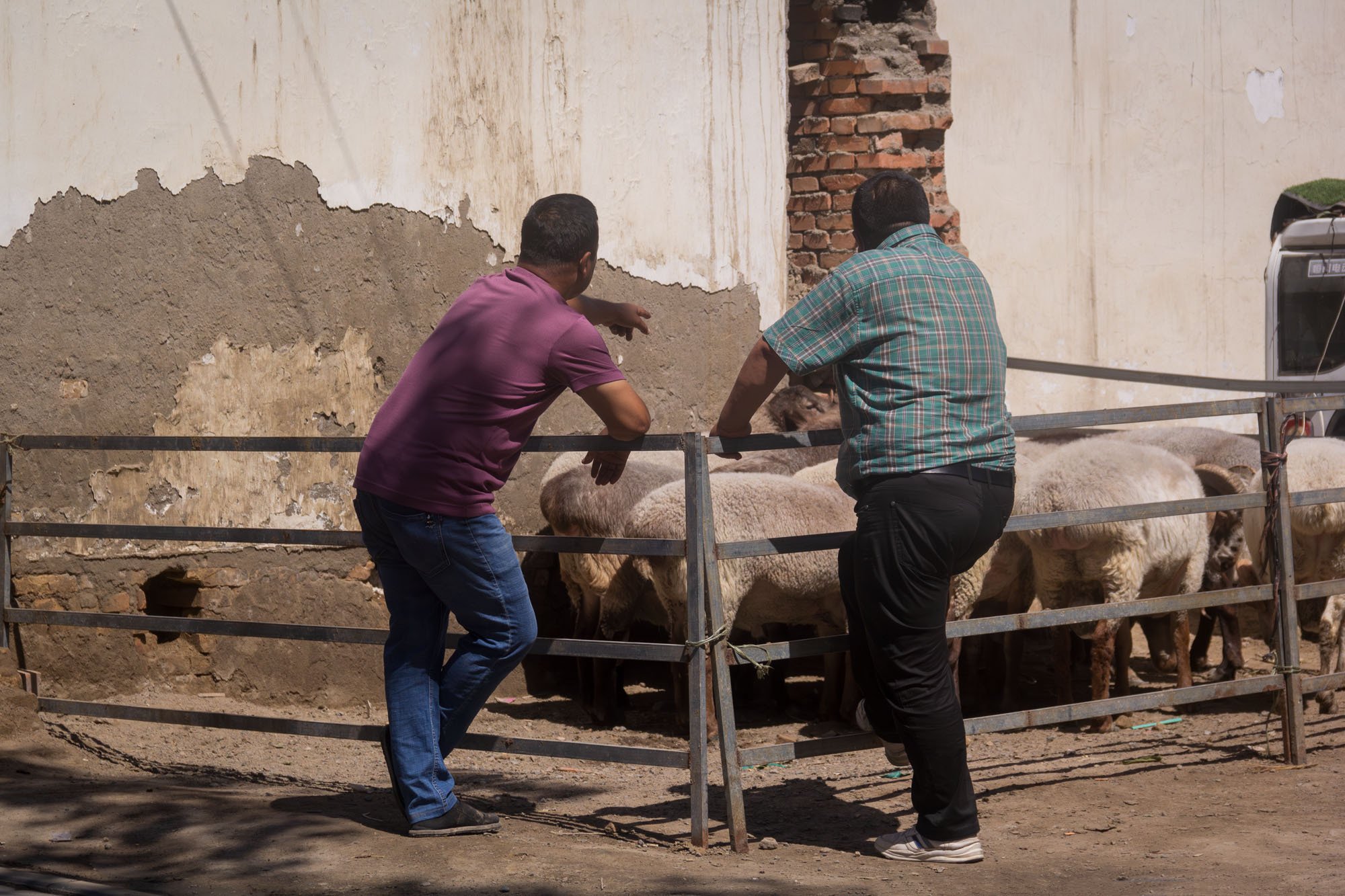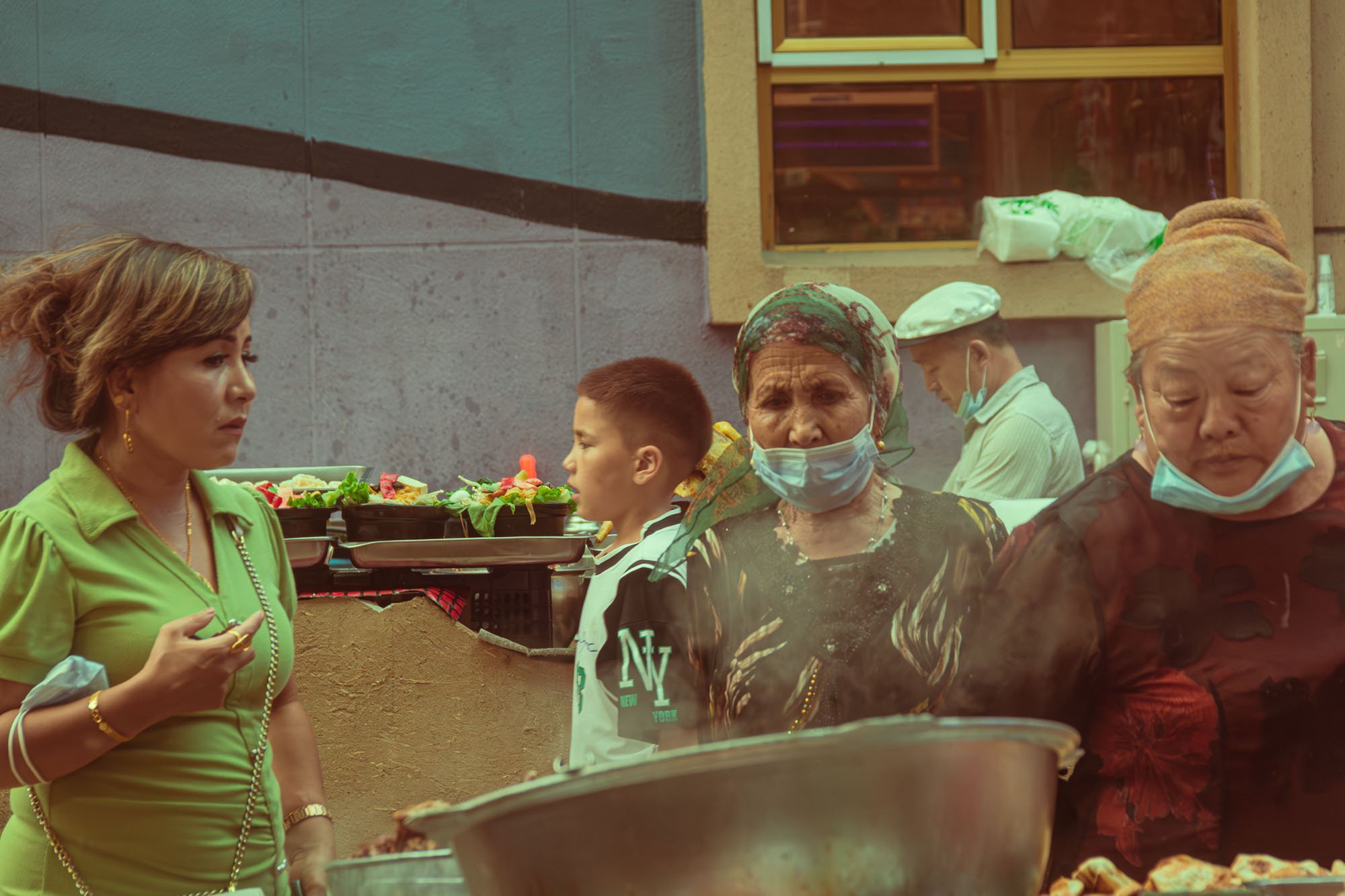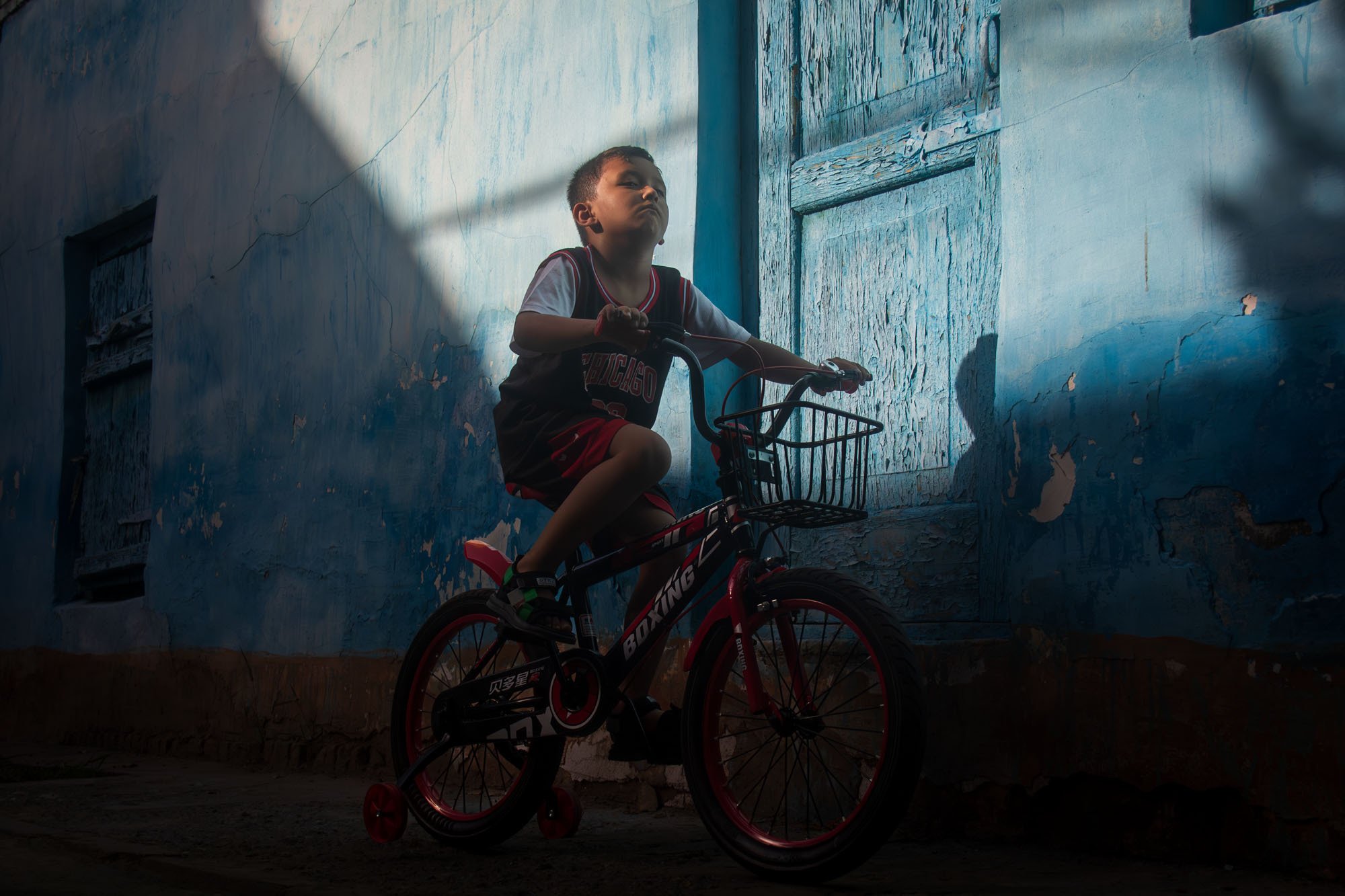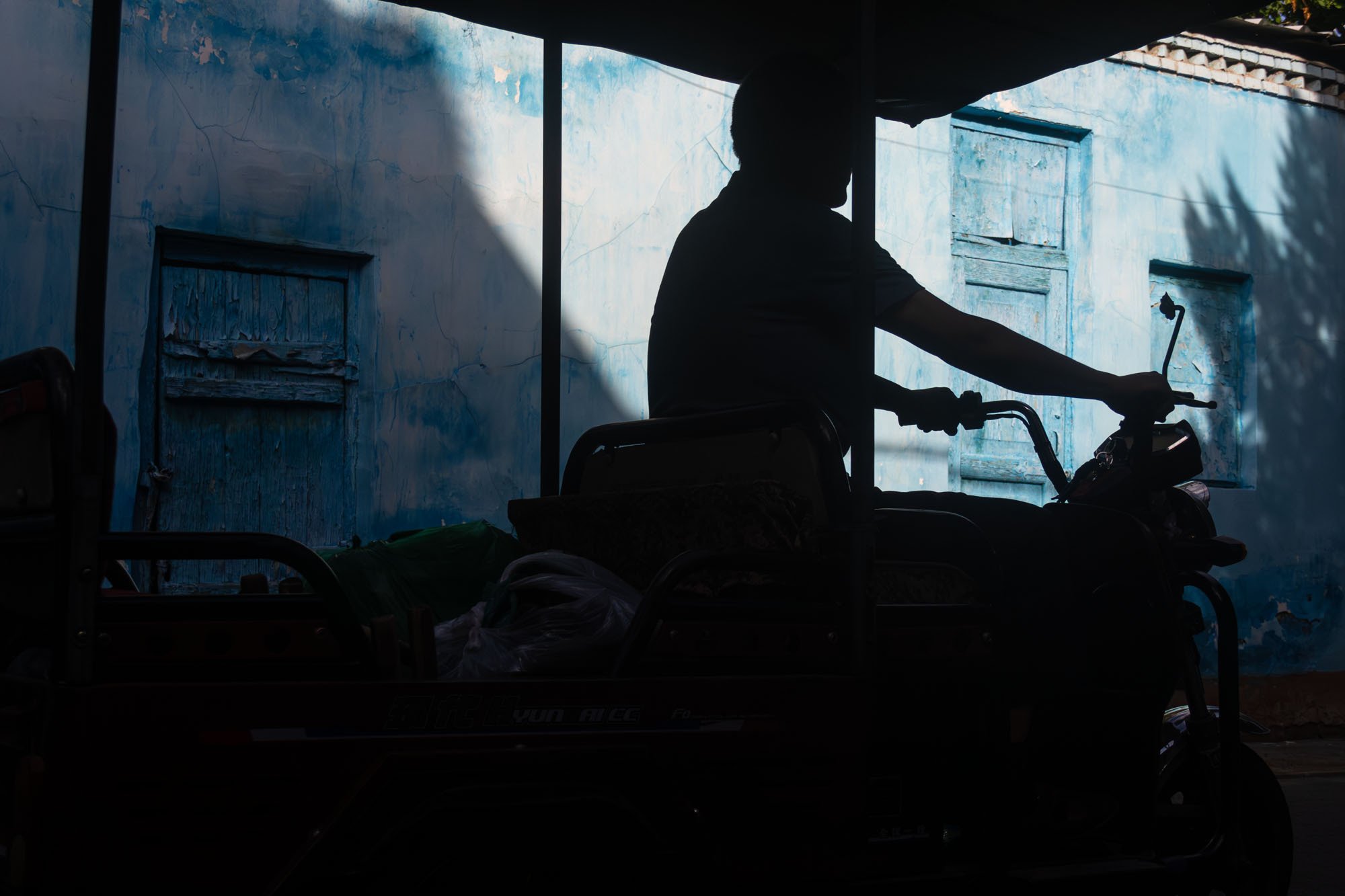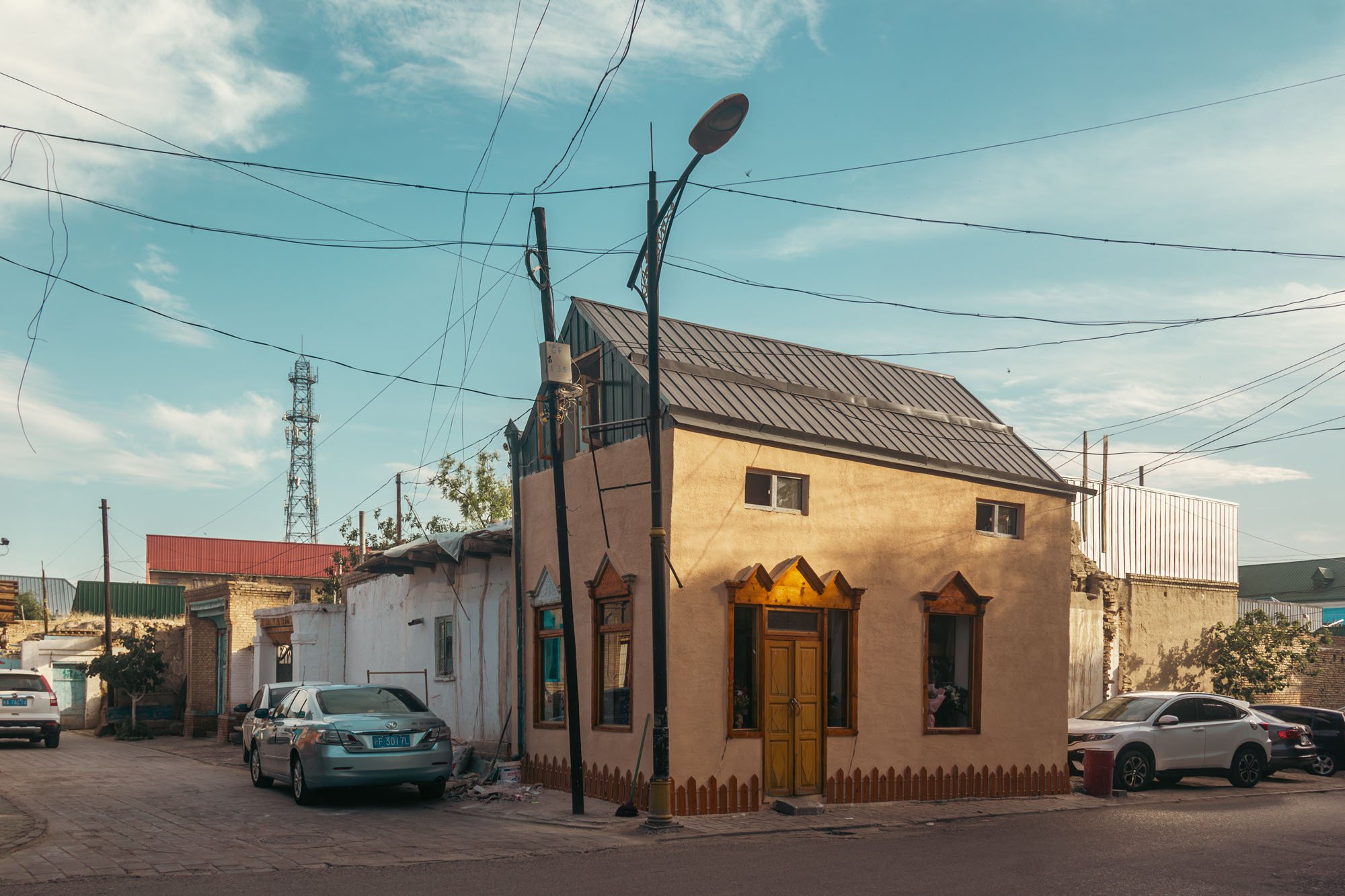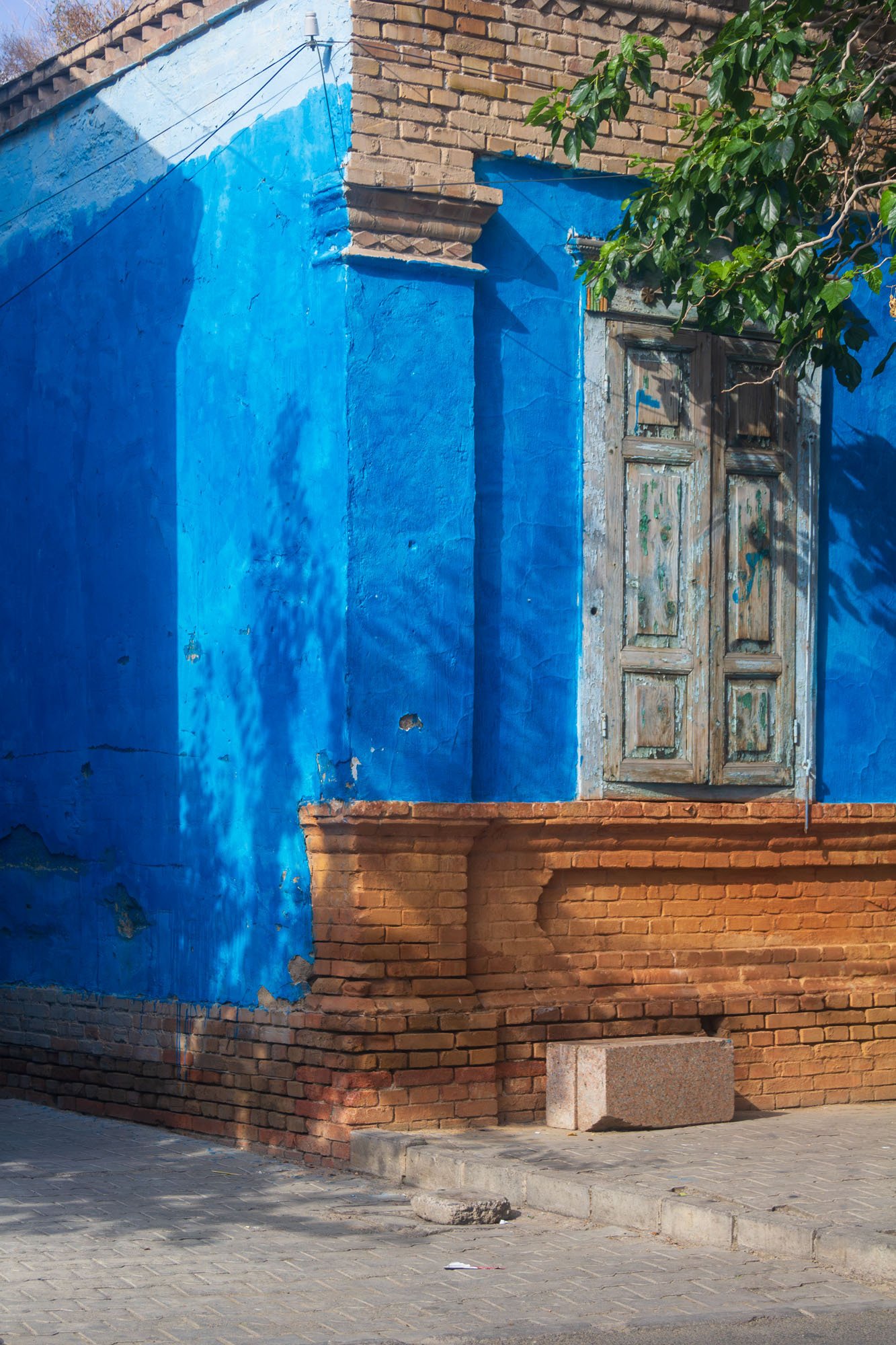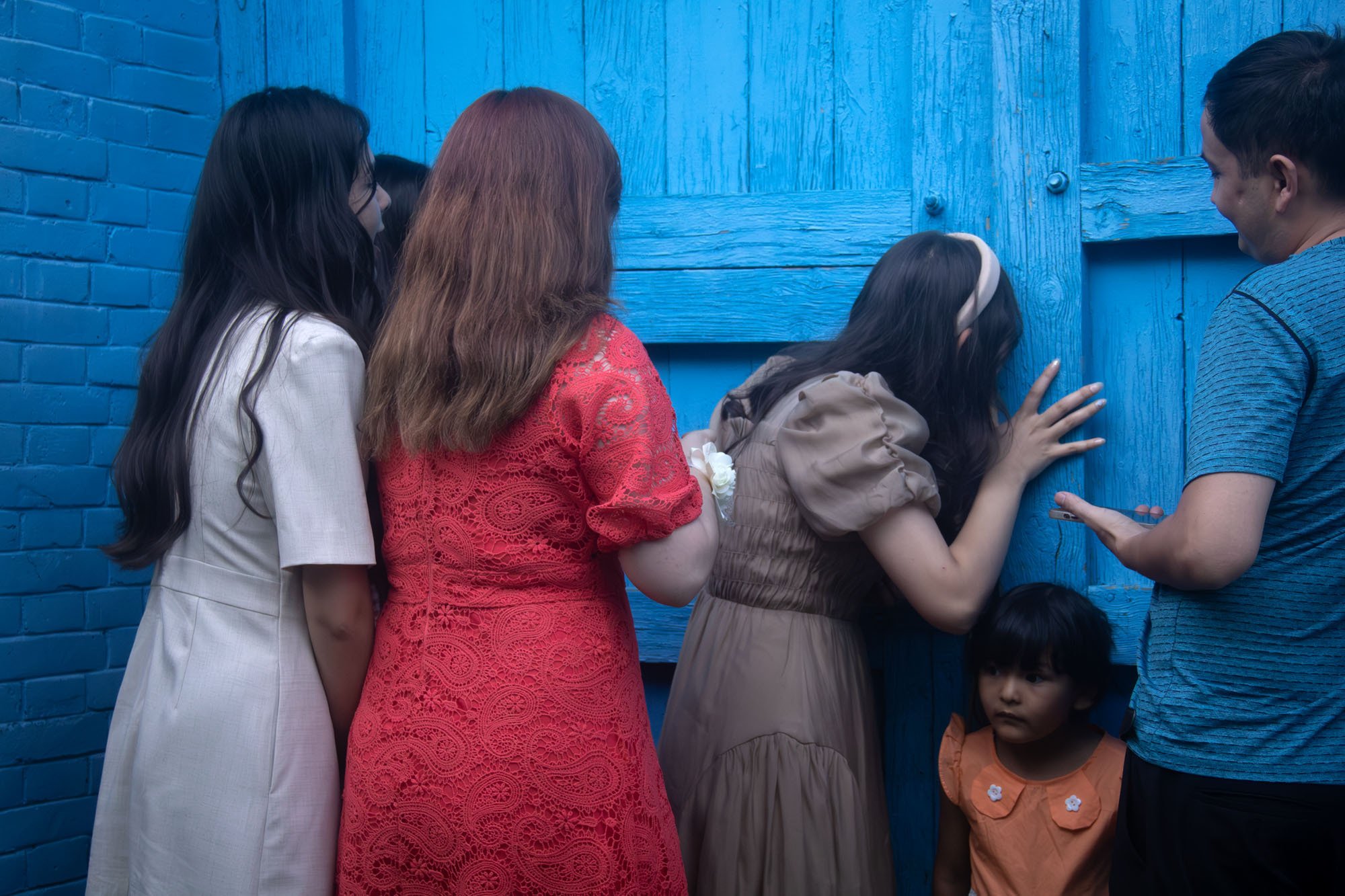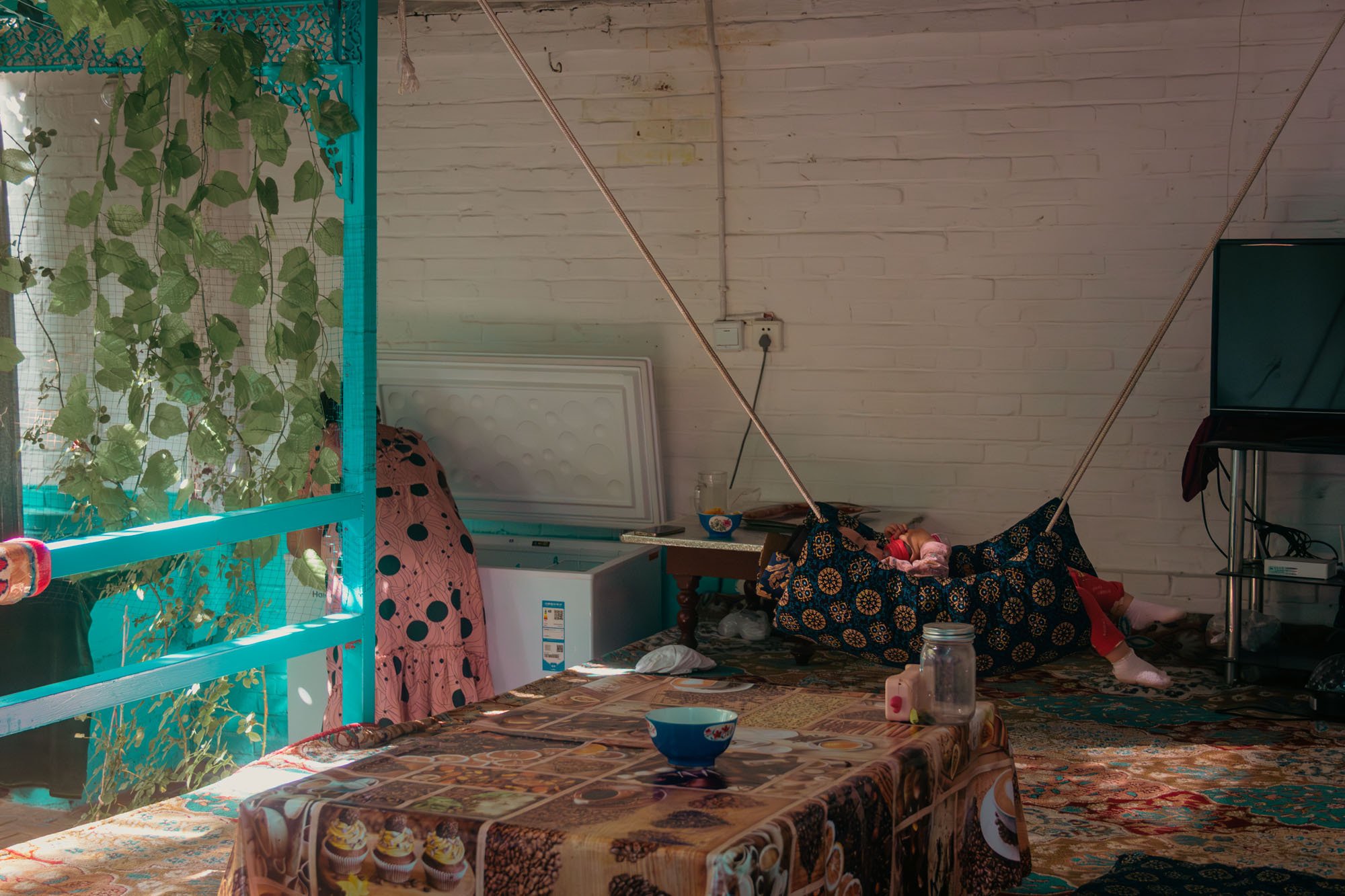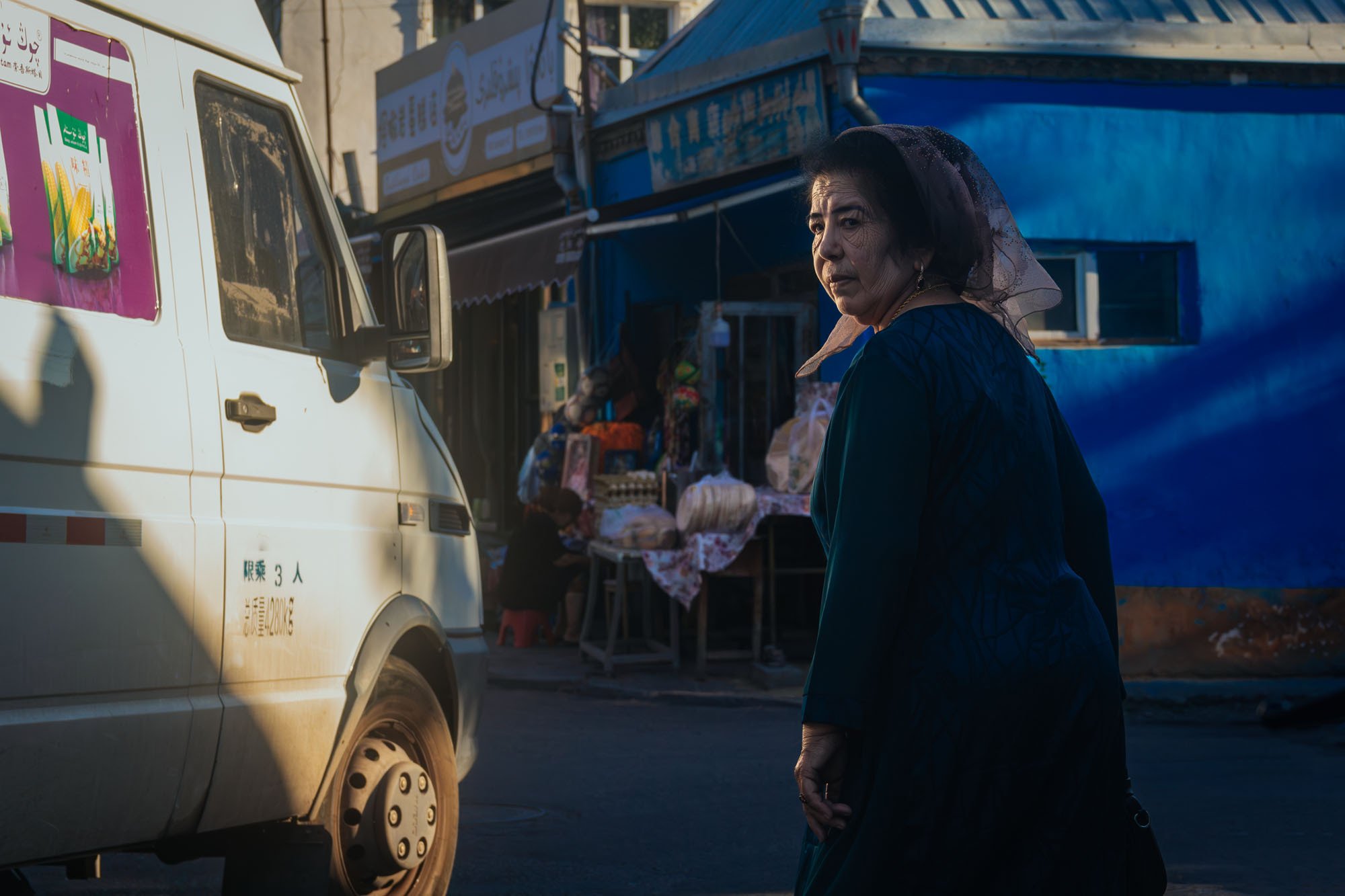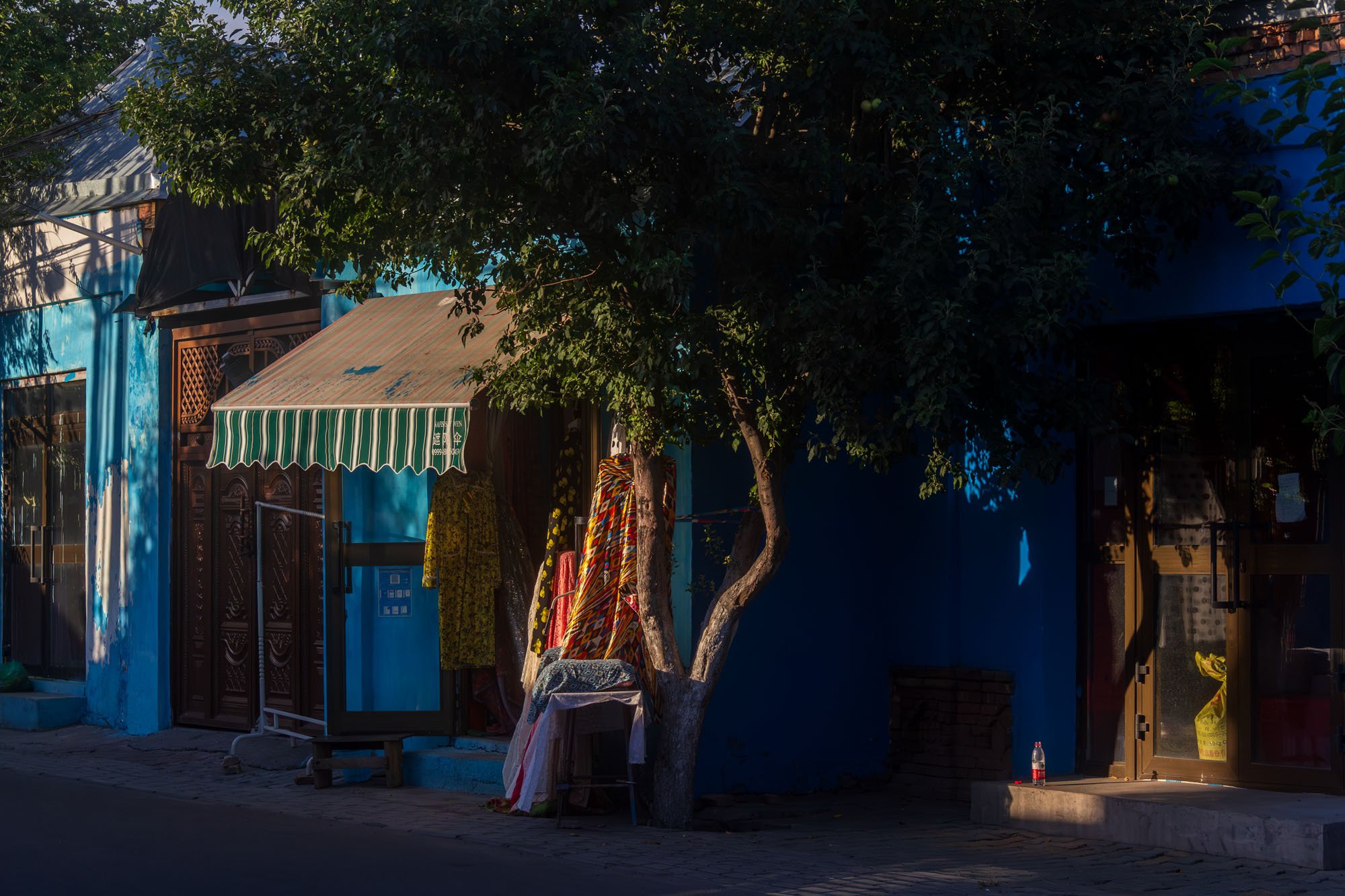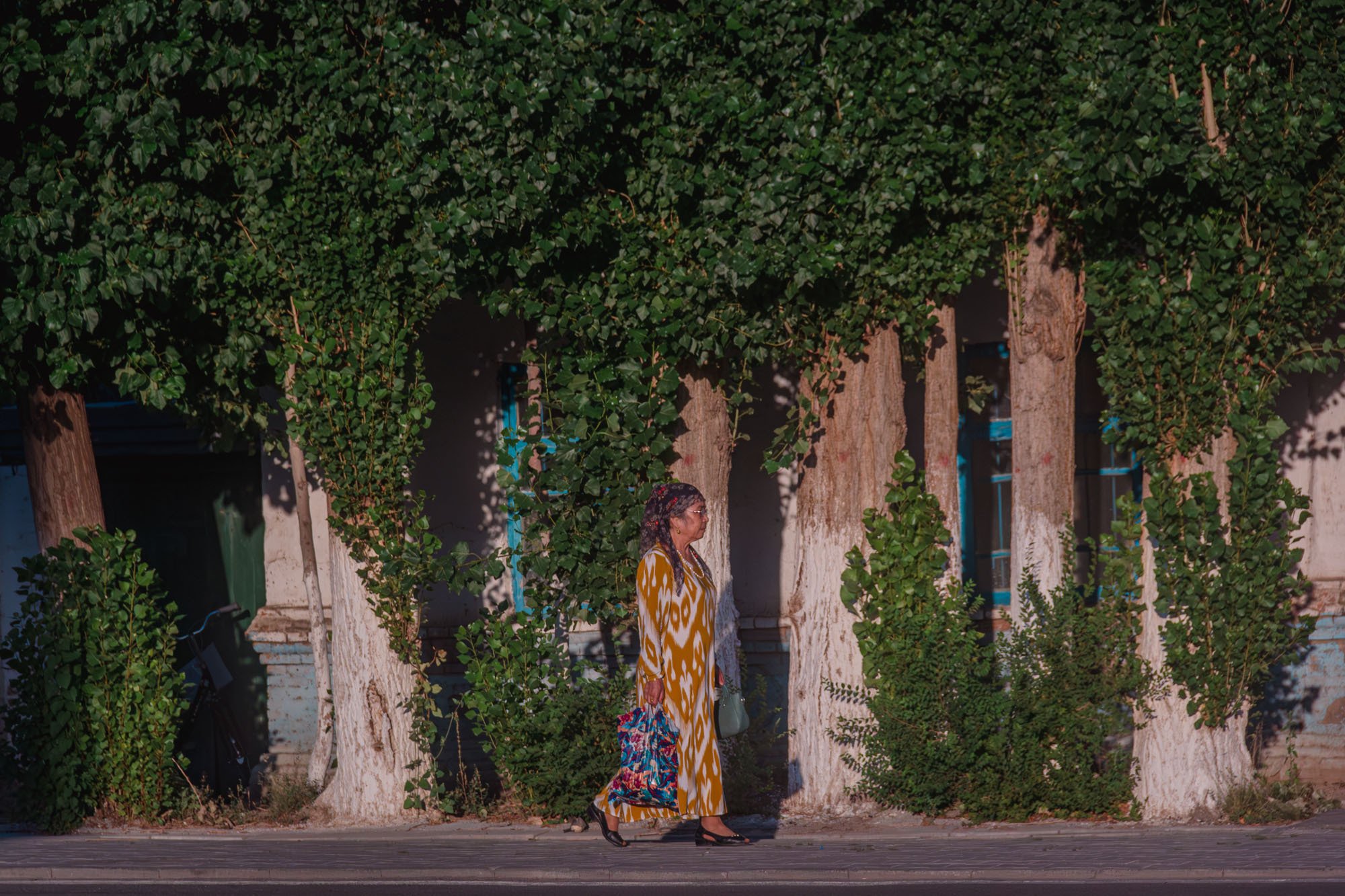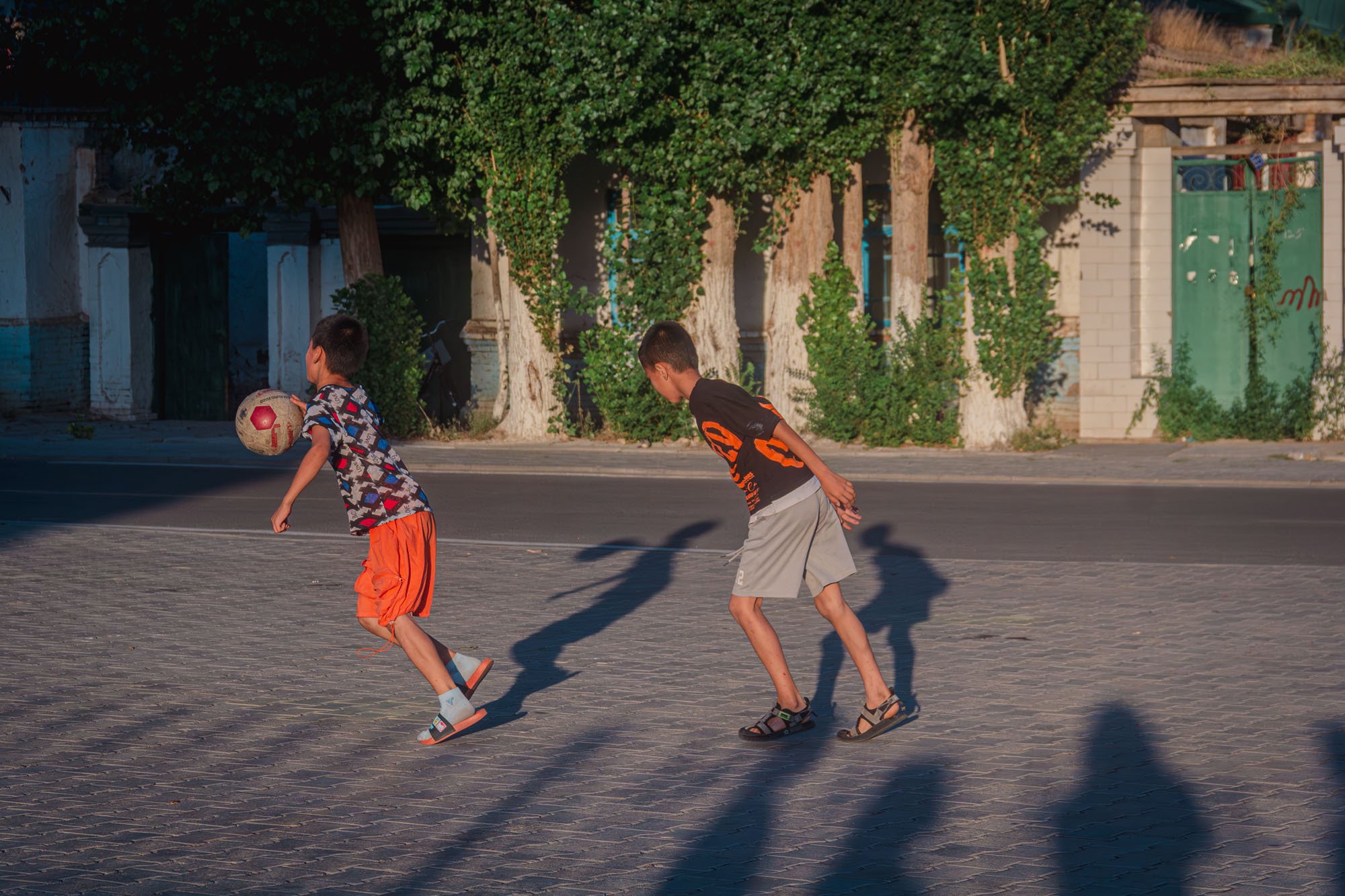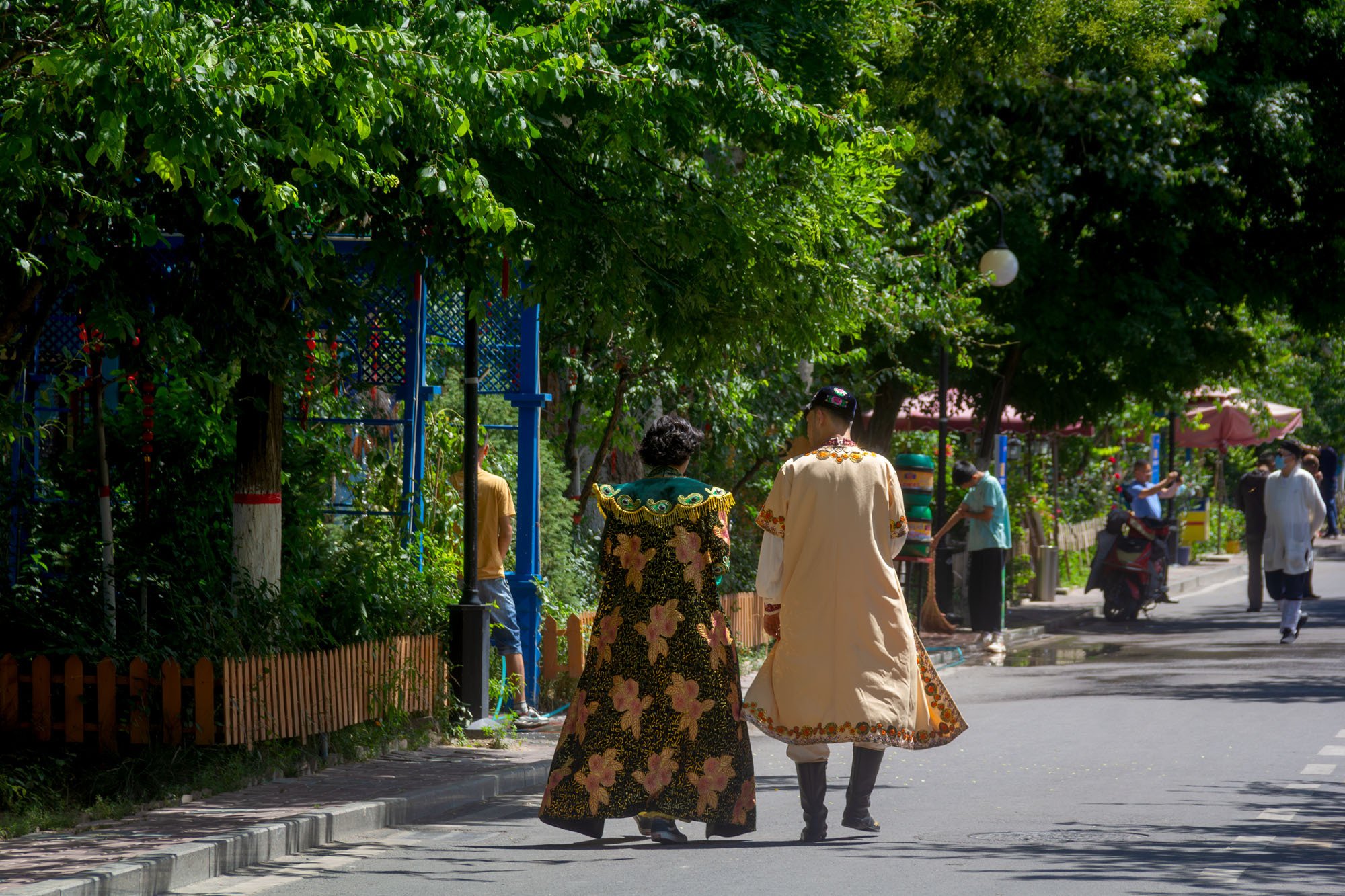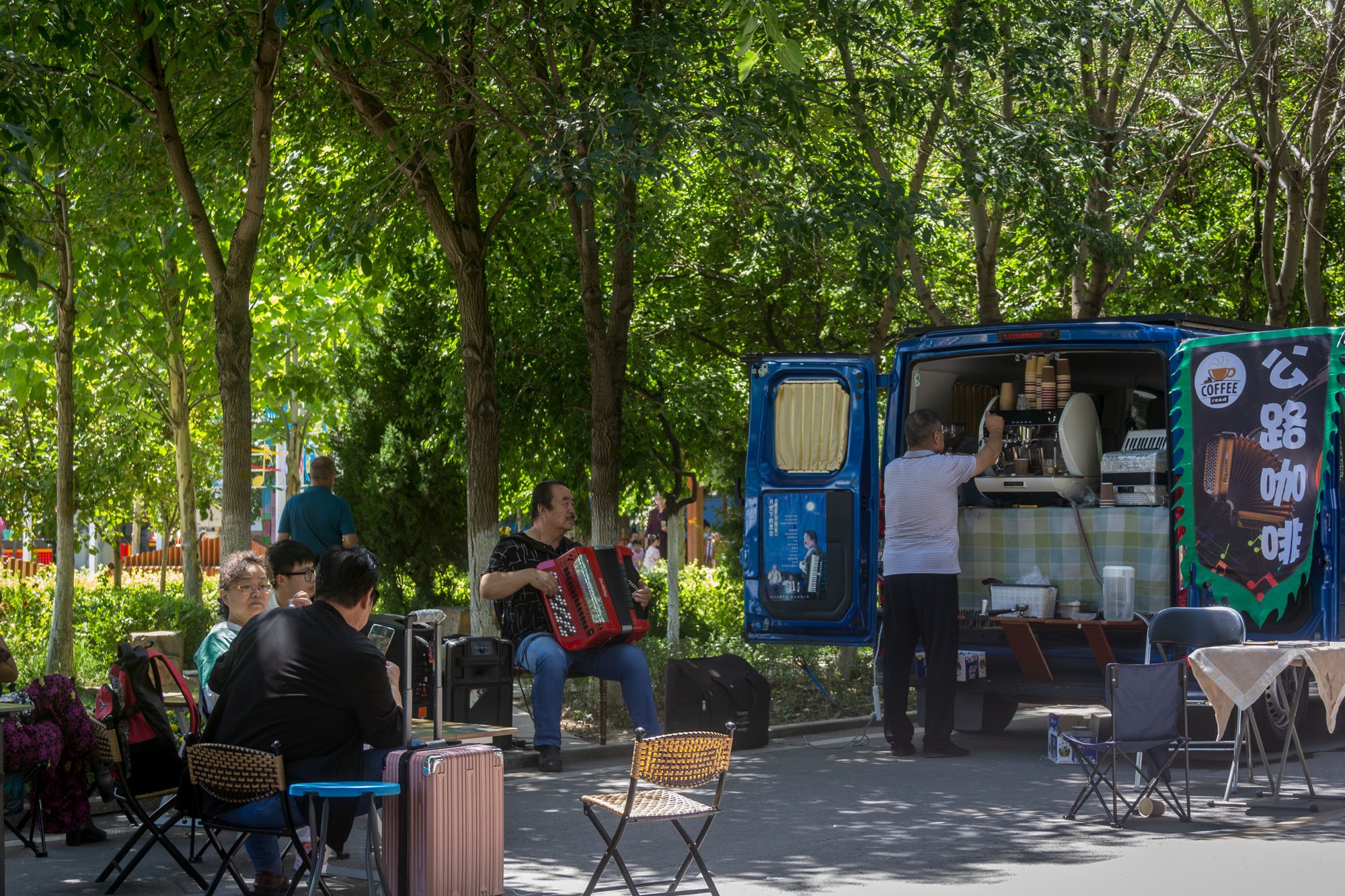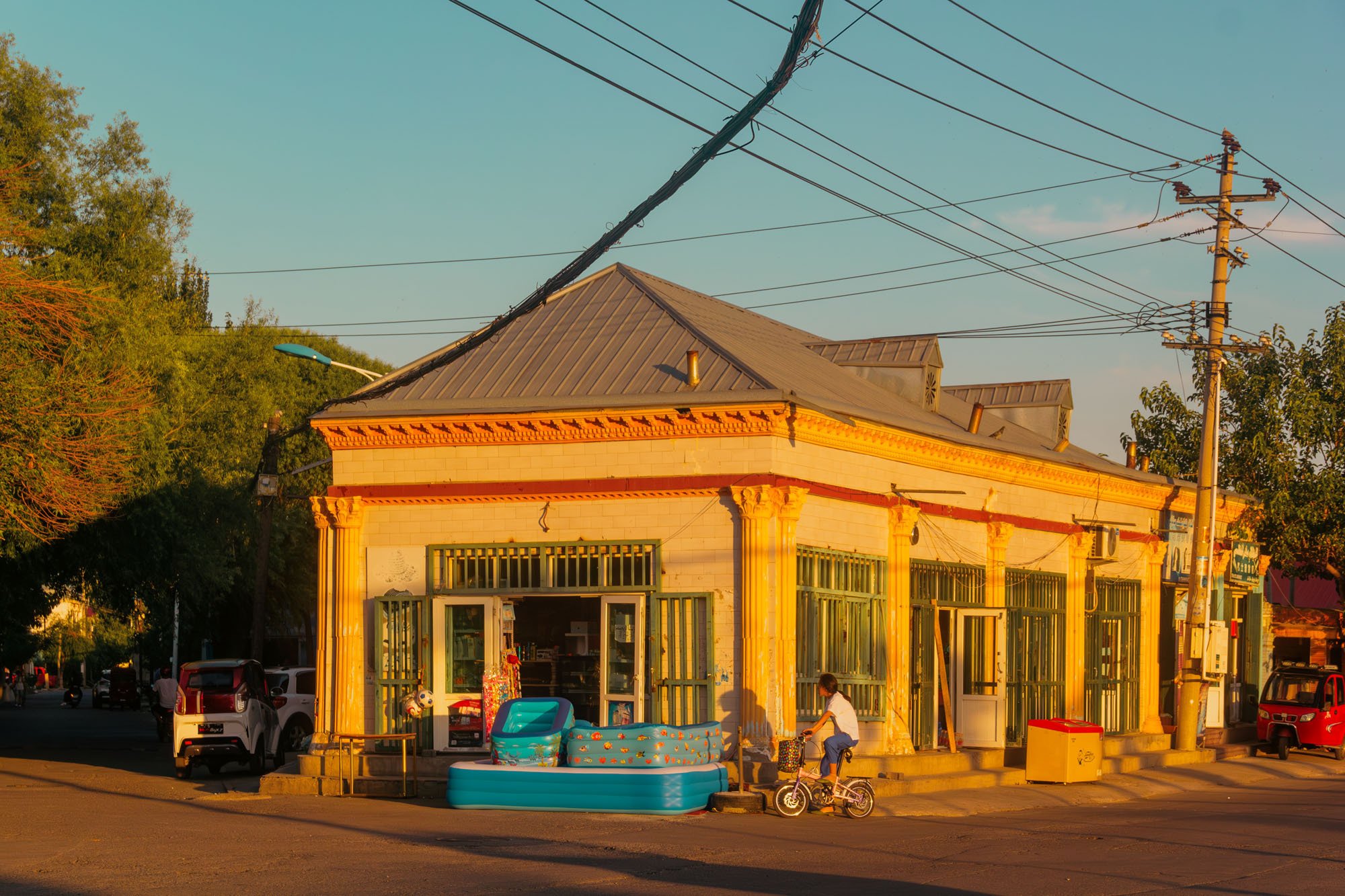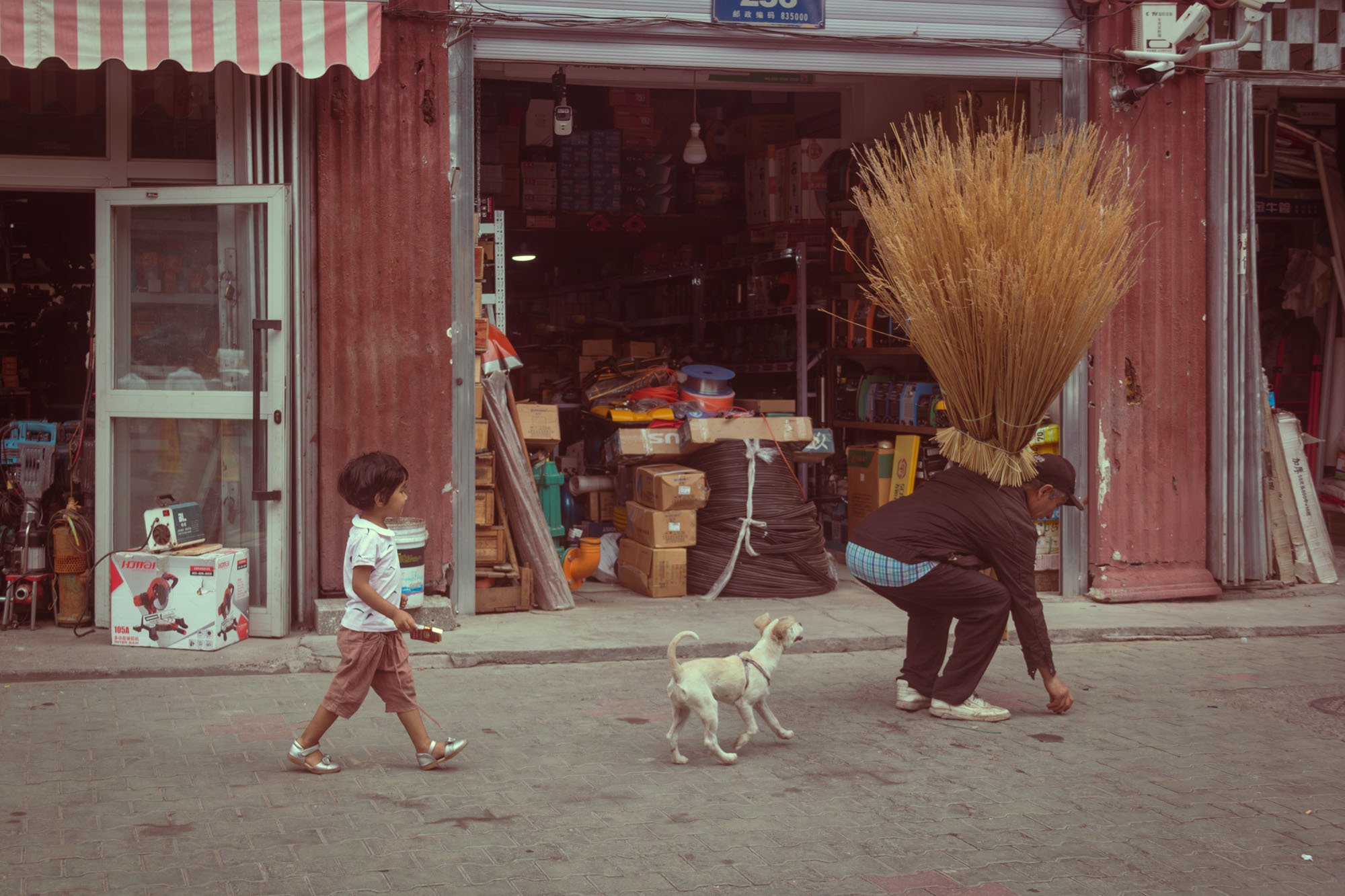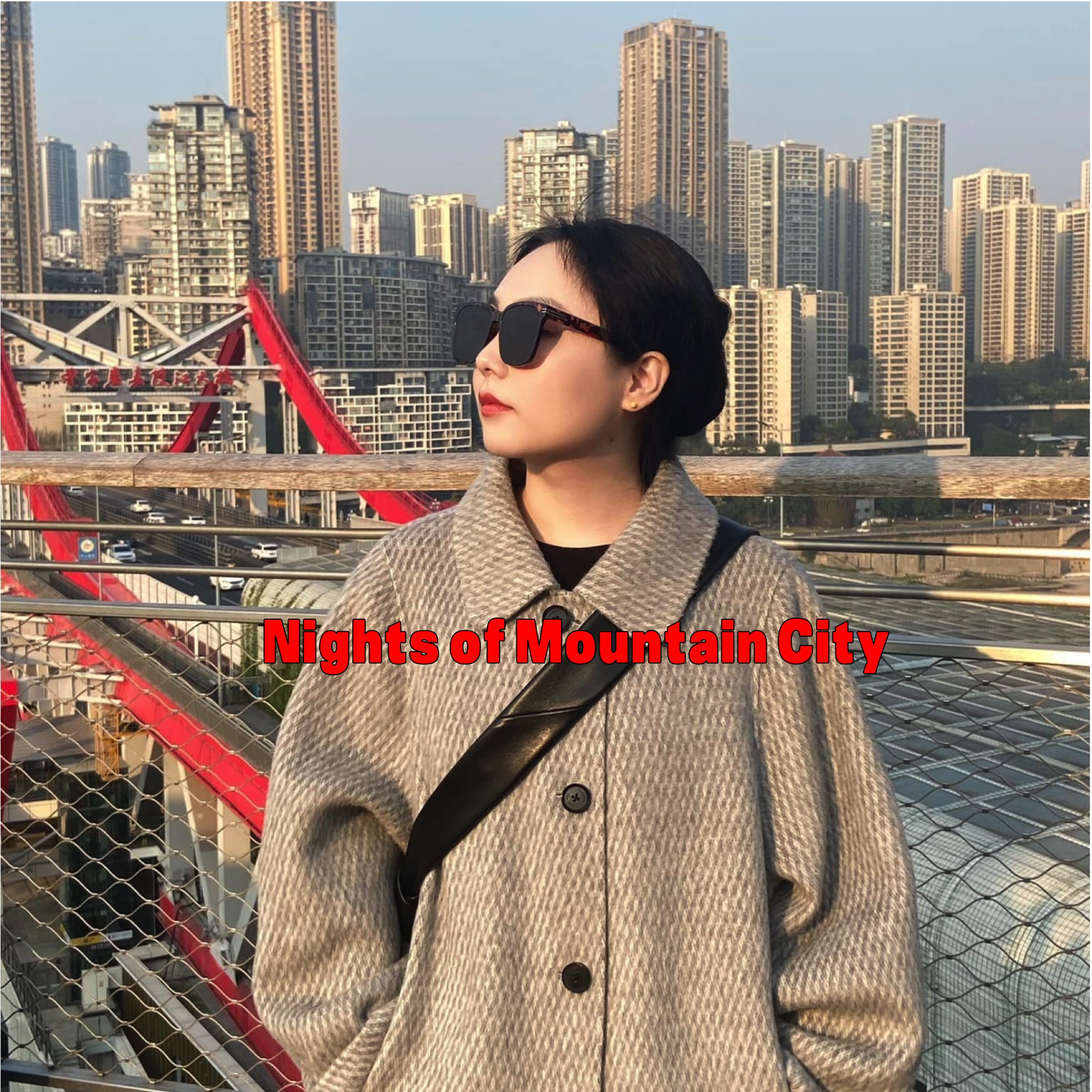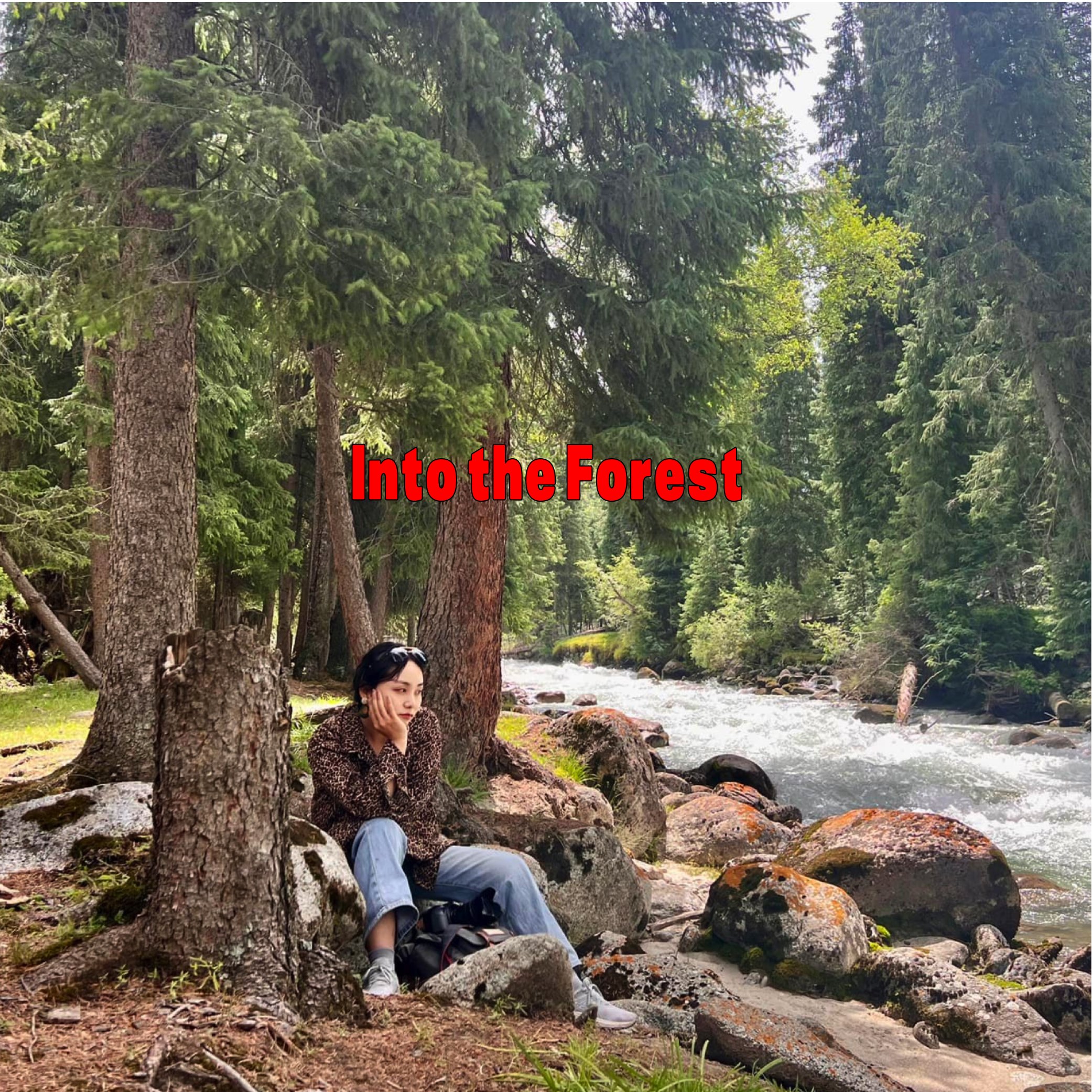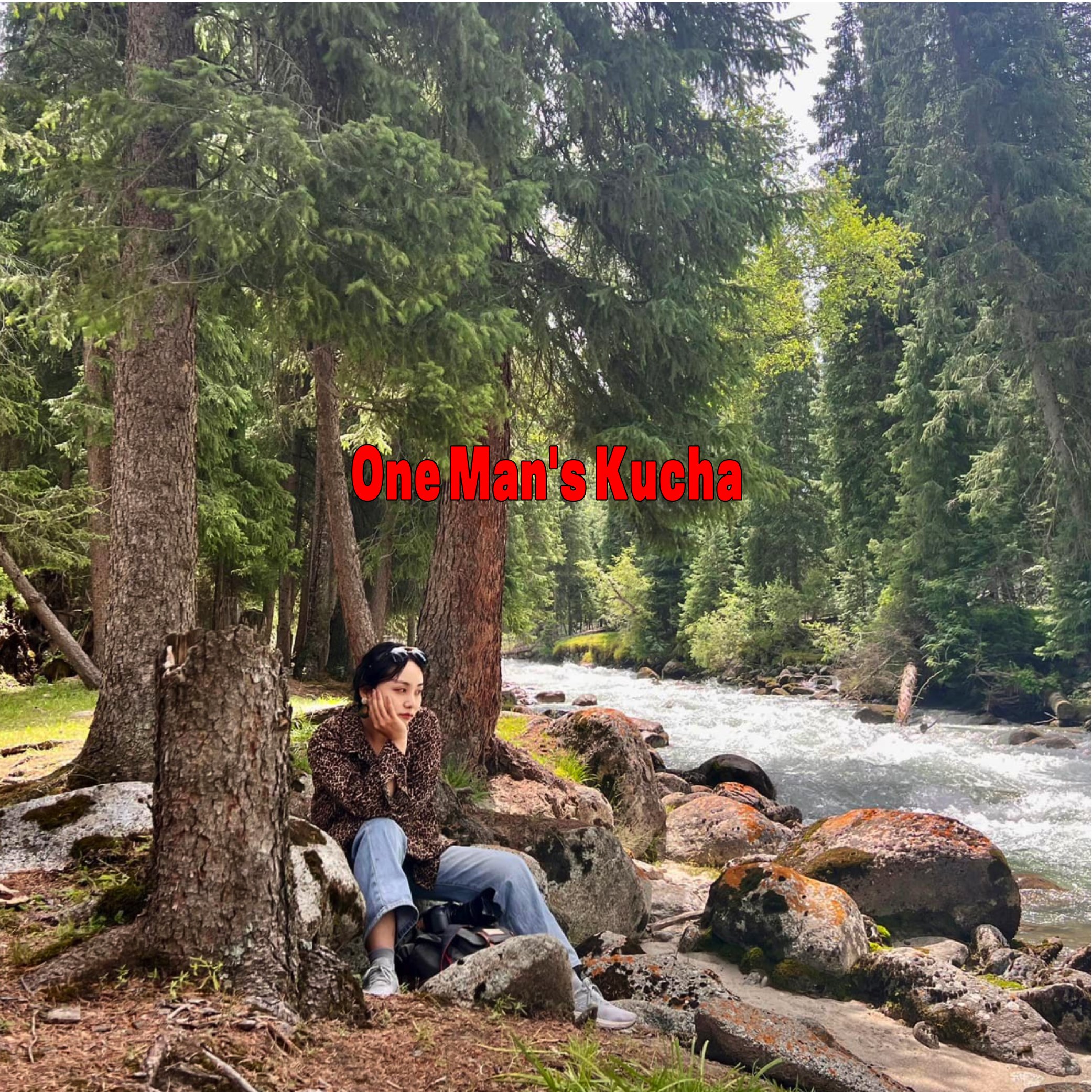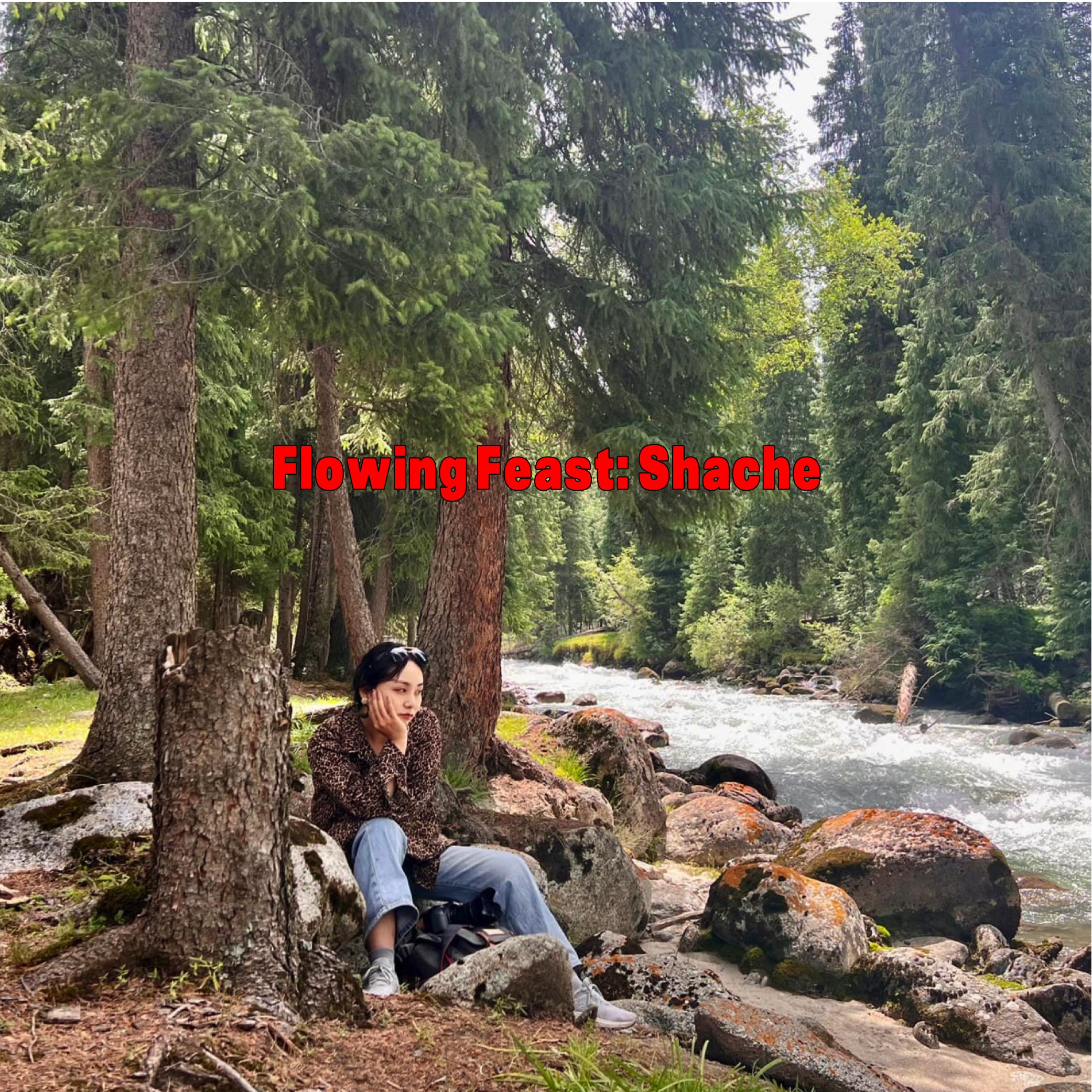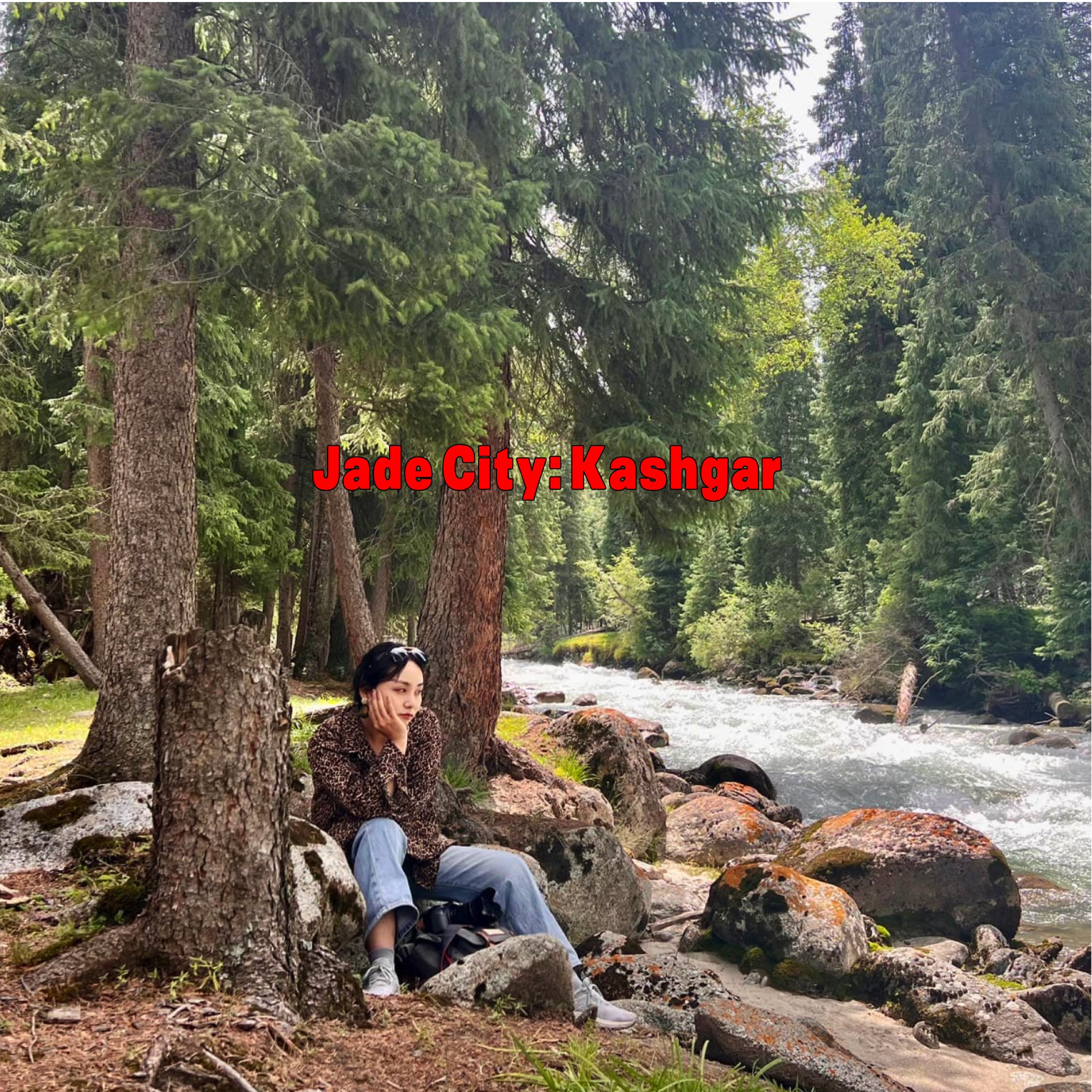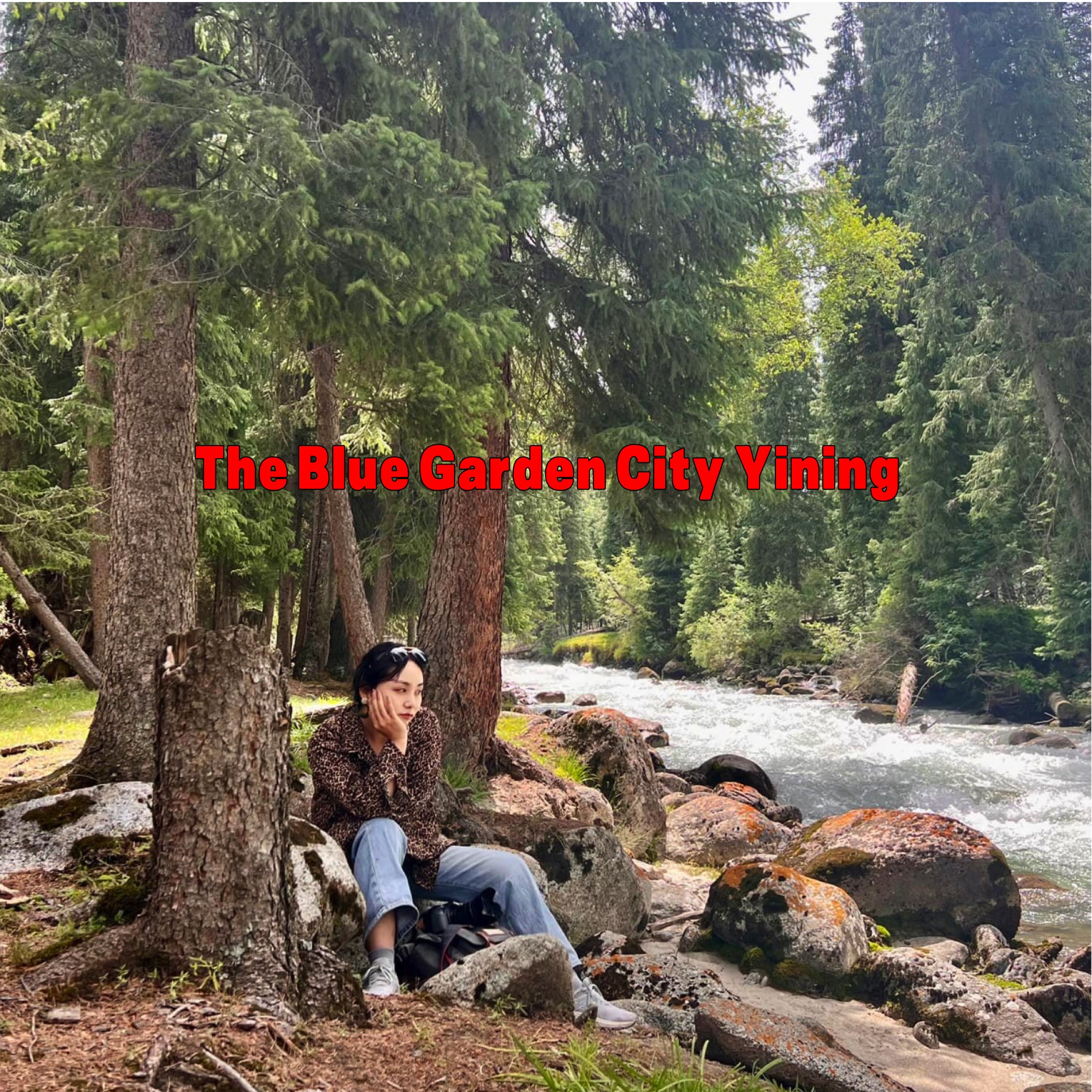My Promised Land: Xinjiang
The Blue Garden City Yining
Yining shines as a bright star in the night sky. It resembles an orchestra, gracefully dancing with the accordion, Dombra, Dutar, and Rewafu, weaving a brilliant luster between solos, unison, and repertoire. It is like a poem that beautifully captures the essence of multi-cultural elegance, vividly narrating the legend of the ancient Silk Road through unique rhythms. The poem etches the footprints of memories onto stucco and brick tiles, gently floating among the domes and pointed roofs. Fond verses, unfolding like paintings, are lovingly engraved above the doors and windows of the courtyards. Yining is the etles and the braji, the saddle and the doppa, the sparkling sapphire. Yining is the temptation of big bread, kavas, marajun and milk tea. With every delightful bite, one can taste the love and anticipation that permeates an extended family. It carries the flavor of cherished memories, evoking happiness and drawing people back into its warm embrace.
An Accordion
I reside on the ground floor of a charming, historic hotel building, nestled amidst towering, verdant trees. The gentle rays of sunlight filter through the foliage, casting a golden hue illuminating the lemon-yellow suitcases. Just beyond the majestic trees lies Six Star Street. This neighbourhood, constructed in 1937, was meticulously planned and designed by the German engineer, Vasri. It revolves around a central garden, with outward avenues, neatly dividing the blocks into six sectors. Here, the heart of the area is adorned with educational institutions, bustling markets, and other public edifices, while residential quarters gracefully edge the periphery. From an aerial perspective, the neighbourhood unveils itself as a symmetrical hexagon. At one time, 60 to 70 per cent of its inhabitants were Russian.
As I strolled leisurely along the azure wall, I encountered enchanting courtyards adorned with breathtaking blooms. In this picturesque scene, a plethora of exquisite flowers unfolded before my eyes: crimson roses, fragrant lilacs, intricate dahlias, vibrant cosmos, and grandiose plantains. The architectural details of each house, including the window lintels, gables, corbels, and verandahs, were meticulously adorned with ornate floral motifs, graceful vines, and intricately crafted scrollwork.
As I walked through the courtyard, I seamlessly blended into the vibrant and lively crowd. The gathering comprised individuals from all walks of life, hailing from different corners of the city and encompassing both local residents and curious tourists from afar. Each person’s attire exuded a sense of individuality and distinction. Some were adorned in traditional Russian garments, while others showcased the elegance of Uyghur costumes. Alongside these, modern and trendy outfits added a touch of contemporary fashion to the scene. The air was filled with a harmonious chorus of languages, reverberating in my ears. Russian, Uyghur, Mandarin, Cantonese, and Sichuanese seamlessly intertwined, creating a symphony of diverse linguistic expressions.
In an instant, the sky opened up with a downpour of sun and rain. I hurried into a nearby garden, finding shelter in front of a spacious Russian bakery.
“It has been incredibly hot this summer, causing many of the flowers in the garden to wither,” remarked an ethnic Russian aunt. She stood in front of the bakery, dressed in a vibrant printed dress with a braided hairstyle adorned by a neatly wrapped headscarf. With a disgruntled tone, she added, “In previous years, this time of year in Yining used to be pleasantly cool.”
“Yes, the heat is unbearable! As soon as I disembarked from the train, I was hit by a wave of intense heat. Tacheng never experienced such hot summers in the past,” I replied. Curiously, I asked, “I wonder how the grass is faring in the grassland now?”
“This year, we had good spring precipitation, resulting in lush grass growth. You should go and have a look soon,” Auntie suggested.
“Alright, Auntie. Do you have any more big bread available in the store?”
“I’m afraid we’re sold out, dear. But make sure to come early tomorrow. I’ll prepare fresh big bread for you,” she kindly responded.
I nodded slightly disappointed. However, it wasn't long before the rain ceased its downpour. As the sun emerged, its radiant smile lit up the surroundings. I found a small store and ordered a kavas, a traditional Russian drink, crafted from fermented black bread, along with some snacks. Sitting under a birch tree, I enjoyed the simple beauty.
The resonating melody of a melodious accordion filled the air. Lifting my gaze, I beheld an old grandfather captivatingly playing the beloved Russian folk song Katyusha on his accordion. Surrendering to the enchanting melody, I closed my eyes, immersing myself completely. The sound of the accordion resonated within the bosom of the birch forest, its notes intertwining with the scent of moss and earth. The leaves gently swayed in harmony with the rhythm, as if dancing to the music's sweet embrace. The emotional cadence of the music stirred my soul, transporting my thoughts back to the cherished memories of my childhood.
In the depths of dark nights, I found myself in the embrace of my spacious bedroom, enveloped by the enchanting world of literature. The masterpieces of Gorky, Lev Tolstoy, Pushkin, and Dostoevsky, like guiding stars in the darkness, fueled my imagination. Page after page, I immersed myself in the destinies, dreams, pains, and hopes of their captivating characters. Through their magnificent literary creations, my heart was deeply touched, as if woven into the fabric of their stories.
After a long day of exploring, I finally returned to the hotel, where the slender hotel owner’s wife emerged from behind the front desk and greeted me. Pointing towards the source of the melodious accordion music, she explained, “See that one playing the accordion? He comes back to Yining for the summer every year. His friend sells coffee out of the trunk of the car while he plays. Once winter arrives, he heads to the warm embrace of Sanya. I must admit, I’m a little envious of his nomadic lifestyle.” Transitioning to another topic, she added, “Next on the list is Kazanqi, a place not far from here. It’s about half an hour by bike. Taking a taxi isn’t very convenient.”
I expressed my sincere appreciation to the enthusiastic hotel owner's wife as my eyes wandered, quietly surveying the weathered patches adorning the walls of the promenade. Amidst the constant influx of travellers, each swiftly replaced by the next, the undeniable marks of passing years gradually manifested upon this historical abode. The peeling paint and textured surfaces revealed the story of time's gentle wear. Meanwhile, the outside world surged forward in a rapid, almost aimless manner, seemingly oblivious to its own direction. This profound transformation extended far beyond the hotel standing before me, reaching out to every corner of Six Star Street and resonating throughout the entirety of Kazanqi.
I retreated to the cool sanctuary of my room, gently drawing the curtains, and gracefully plunging into a profound slumber. Just like in that distant year in Yining, when the world existed as a faint murmur within my mother's womb, I peacefully slumbered, unburdened by worries. Within the realm of my dreams, I basked in the exquisite serenity, as if cocooned in a tender embrace and surrounded by an enveloping warmth. It was as though I had embarked on a voyage back to the very genesis of existence, once again merging with the captivating essence of this familiar land.
A Bowl of Milk Tea
Silken curtains adorned with delicate gold filigree flutter lightly in the gentle morning breeze, carrying a subtle hint of floral tea. As I step inside the milk tea house, a marvelous sight unfolds before me. The walls on both sides of the window come into view, adorned with captivating decorations that transport me to the heart of Kazakh culture. On the left wall, large Kazakh silver artifacts catch the sunlight, adding a touch of grandeur to the room. On the right wall, a painting hangs, depicting a young Kazakh girl tenderly caressing a majestic stallion. She is dressed in traditional Kazakh costume, her distinctive pointed hat adorned with sparkling silver diamonds and owl feathers. The stallion, too, is adorned with jewel-like silver diamonds, reflected in a dazzling light that dances across their ears and lead rope.
I lightly brushed the spoon against the surface of the milk tea, capturing a scoop of the tender milk skin. Instantly, a burst of robust flavours flooded my mouth, blossoming with each sip. This bowl of milk tea, boasting a delightful balance of saltiness with a subtle undertone of sweetness, quickly became my favorite.
Continuing my gastronomic journey, I reached for a baursak, a traditional Kazakh snack. As I dipped it into a pool of jam, I relished
the collision of sweet and sour flavours that danced on my taste buds. Next in line was a taste of the Kazakh potato. Each bite revealed a delightful fusion of delicate sourness and a hint of spiciness. Lastly, a bowl of homemade noodles awaited, its chewy texture and enticing aroma beckoned me. The various seasonings mingled and harmonized as I savoured each mouthful, creating a symphony of tastes that pulsed on my tongue.
These remarkable culinary encounters wove together a vibrant tapestry of tastes, immersing me in the rich and diverse flavours of Kazakh cuisine. As I savoured each dish, I couldn’t help but ponder the nomadic life on the grasslands that gave birth to such remarkable gastronomic traditions—an existence steeped in raw enchantment, a profound connection to the land, and a sublime tapestry of heritage waiting to be explored.
A Horse-drawn Carriage
I cycled along the streets on the blue bike under the gentle morning sunlight and my head lightly swaying. I flew past the domed mosque and headed to Kazanqi, a mysterious and desirable place. Kazanqi, which means people who cast iron pots in Uyghur. Kazanqi was established centuries ago when some Uyghur artisans, who made pots and pans as their trade, moved to this place from the southern
Xinjiang Province. Nowadays, there are a diverse range of ethnic groups, including Uyghurs, Han, Hui, Uzbeks, Kazakhs, Xibes, Manchus, Russians, Mongols, Tatars, Tajiks, Kyrgyz.
When I came to the gate labeled Kazanqi Folklore Tourism Zone, I was struck by the flocks of pigeons in front of the gate. Adults and children were gleefully feeding the pigeons, and the air filled with joyous laughter. Pushing my bicycle, I walked down the sidewalk. A stylish carriage came into view, adorned with a beautiful floral carpet, a picturesque canopy adorned with delicately woven etles. The old Uyghur man who steered the carriage, clad in traditional dress, held up the whip, the rhythmic clip-clop of the horse’s hooves filled the air, and the melodious chime of bells echoed in the air. I mounted my bicycle and followed the horse-drawn carriage.
The architecture here is harmonious and rhythmically aligned. The roofs are adorned in shades of green or embellished with tin coverings. The buildings and courtyard walls on the streets are artistically embellished with bright colors, mostly blue, white, and brown hues adorning the exteriors. The courtyard gates of each home were uniquely and beautifully adorned in clear blues, cheerful oranges and warm reds. Inside and outside the yards, flowers, plants and fruit trees are lovingly planted and clean. Along both
sides of the street are an abundance of traditional handicraft ateliers with displaying an array of crafts such as saddles, ironwork, woodcarvings, musical instruments, and more behind blue-tinted windows.
A Lonely Warrior
At the far end of a narrow blue alleyway, I heard joyful laughter and melodic singing, and my curiosity compelled me to uncover its source. Guided by the melodic strains, I came to a tall and lush mulberry tree. The mulberry tree’s lush branches and leaves stretched out like verdant umbrellas, providing a respite from the scorching sun and offering them a refreshing coolness. Through the gaps in the leaves, the sunlight casts warm soft, dappled shadows on the children's smiling faces, illuminating their joyful faces. Beneath their playful feet, the ground beneath them stained a deep purple-black hue from the succulent juices of the mulberries.
"Sister, can you play us Lonely Warrior song on your cell phone?" Children surrounded me, sitting crouched on the curb, anticipating the melody. I turned on my cell phone and found the song, the melodies enveloping my senses. "This is it!" The kids stood up excitedly and sang at the top of their lungs. A few gazed towards the sky, amidst the scattered stars, where sunlight began to blend with the night, while others held their hearts, deeply touched by the music’s embrace.
"Go now? Should I? Wearing these ragged clothes I'll fight, survive, to keep my dream alive / For the meekest and the valiant beat my foes / Who said heroes can't be ordinary souls"
Amidst it all, against the current, I witnessed a glimmer of hope, like a man gazing upward, finding solace in the light.
The children escorted me to the end of the alley, and they bid their farewells, extending their fingers towards the setting sun. I pedaled my bike and crossed the street quickly. Within my view, an apple rolls around recently plucked by a teenager from his apple tree. His yard was alive with life. Grapevines elegantly draped over the trellises and underneath was placed a large bed with a crimson carpet. The family gathered here, enjoying a meal, sipping tea, engaging in lively conversation, and delicately stitching their needlework. The apple and apricot trees drooped under the weight of their bountiful harvest. The flower beds, adorned with vibrant red roses, gorgeous sunflowers, and other blossoms, basked lazily in the warm sunlight, radiating their beauty.
A Sunset Wedding
A blue door stood open, revealing a yard adorned with balloons, flowers, and lush green leaves. The girls were engrossed in lively conversations and laughter, their gorgeous dress skirts adding to the vibrant atmosphere. As I approached, a beautiful girl with a headband noticed me and warmly waved, inviting me inside. Filled with curiosity, I eagerly stepped into this enchanting and romantic courtyard. The beautiful girl graciously led me to a pristine white stool, taking a seat beside me and offering a bag of snacks. It was a joyous pre-wedding bachelorette party, where the girls celebrated the upcoming wedding with infectious laughter and exuberant dancing.
A few salutes reverberated through the air, and the grand blue gates unfolded, signaling the joyous entrance of the groom and his groomsmen into the resplendent courtyard. Sitting gracefully, the bride wore a stunning white wedding dress, becoming the centrepiece amid the anticipation and blessings of all present. With tender affection, the groom clasped the bride’s hand, and together they delicately cut the cake, eliciting resounding applause from their beloved family and friends. Hand in hand, they gracefully proceeded towards the heart of the dance floor, embarking on a joyous traditional Uyghur partner dance. The second lyrical melody filled the air, reflecting in the groom’s eyes brimming with love, while the blushing bride shyly gazed back at her beloved. Embracing each other with boundless love, they danced effortlessly, their steps gracefully mirroring the gentle rhythm of the music.
With the sun’s afterglow casting its magical hues over the bride and groom’s car, they bid a fond farewell to Kazanqi and swiftly made their way to the park adjacent to the Yili River, eager to continue their dance as the sun gracefully set. As the night descended, the joyous celebration would then shift to a nearby restaurant, where the couple and their families would immerse themselves in an enchanting atmosphere of lively dancing, delectable food, and captivating music, lingering until the early hours of the morning. Meanwhile, the beautiful girl with the hairband took the opportunity to introduce me to the Uyghur wedding customs that prevailed on the Yining side, all the while marveling at the intricate and diverse wedding traditions observed among the various ethnic groups of Xinjiang.
I continued riding towards the Yili River as fiery clouds adorned the sky. The whole sky was dyed red by the sunlight, creating a breathtakingly beautiful sight. The Yili River, an inland river that winds its way through central Asia, connecting China and Kazakhstan, shimmered in shades of orange-red, reflecting the flaming clouds. As darkness fell, I sped through the birch forest, enjoying the cool breeze. It felt reminiscent of that year when I lay on the Gobi Beach, watching the sunset, while riding my bicycle through the birch forest under a starry sky. Time has flown by, and I find myself in a different time and space from my past self, yet the story persistently continues, never-ending.
A Black Sheep
Emerging from the vibrant Ili International Bazaar, I hopped onto my blue bicycle and once again entered the bustling Kazanqi. The air crackled with energy as the lively atmosphere enveloped me, while the zigzagging silhouettes of people weaved through the bustling streets.
Some individuals wielded water hoses, diligently washing the ground to restore its pristine appearance. Others hurriedly navigated grocery stores, eager to procure essential items for the upcoming festival. The fragrant aroma of fresh fruits enticed those who paused before the fruit trolley, carefully selecting the juiciest offerings. Queueing patiently at the naan store, some awaited their turn to purchase the warm naan. Meanwhile, in the tailor store, anticipation swelled as people sought new garments, eagerly envisioning the joy of wearing them during the forthcoming Corban Festival.
The tradition of purchasing sheep, however, holds a mesmerizing allure. An endless stream of people floods the bazaar, driven by anticipation. Within the bustling marketplace, a multitude of sheep stand tethered, their heads bowed, contentedly nibbling on hay and adding to the symphony with their gentle bleating. Eager buyers meticulously scrutinize each sheep, meticulously assessing breed, age, and conformation in their quest for flawlessness. Children, overflowing with excitement, form a lively circle around the sheep pen, enthusiastically pointing and enthusiastically declaring their favorite specimens.
Settling onto a weathered street bench, I savored a bite of the tantalizing roasted stuffed bun. The rich aroma of succulent beef filling unfolded in my mouth, mingling harmoniously with the crust’s flaky texture, creating an exquisite medley of flavors. Just around the corner, a sprightly young boy ascended an apricot tree, deftly plucking a ripe fruit and tossing it with precision to a pair of gleeful playmates. Not far away, a truck rumbled to a halt before a gate adorned in a captivating copper hue. Two robust men expertly unhooked several sheep from the truck, and they eased the animals onto the ground. Observing it all, a matriarch leaned against the door, her watchful gaze filled with a blend of pride and contentment.
Echoing in the air, I heard the rhythmic chorus of “Baa! Baa! Baa!” as a black sheep ambles past me. An older Uyghur man skillfully guided it back to his welcoming yard.
Inside the living room, a bountiful tea table was bursting with an impressive array of exquisite plates. Each plate was adorned with a cornucopia of delicacies, including naan, sanzi, Xinjiang nut cake, dates, apples, grapes, pistachios, almonds, and cantaloupe.
Meanwhile, the kitchen buzzed with fervent activity as the man’s wife and daughter skillfully kneaded noodles and meticulously prepared ingredients. Their dedicated efforts added to the anticipation that hung in the air, as the splendid feast for the Corban Festival took shape. Soon, the table would boast tender stewed lamb, fragrant Xinjiang rice, succulent kebabs, and the enticing noodles with shredded meat.
These flavors, deeply rooted in the warmth of home, etch an indelible imprint on the palate, making them unforgettable no matter where life’s journey takes us.



